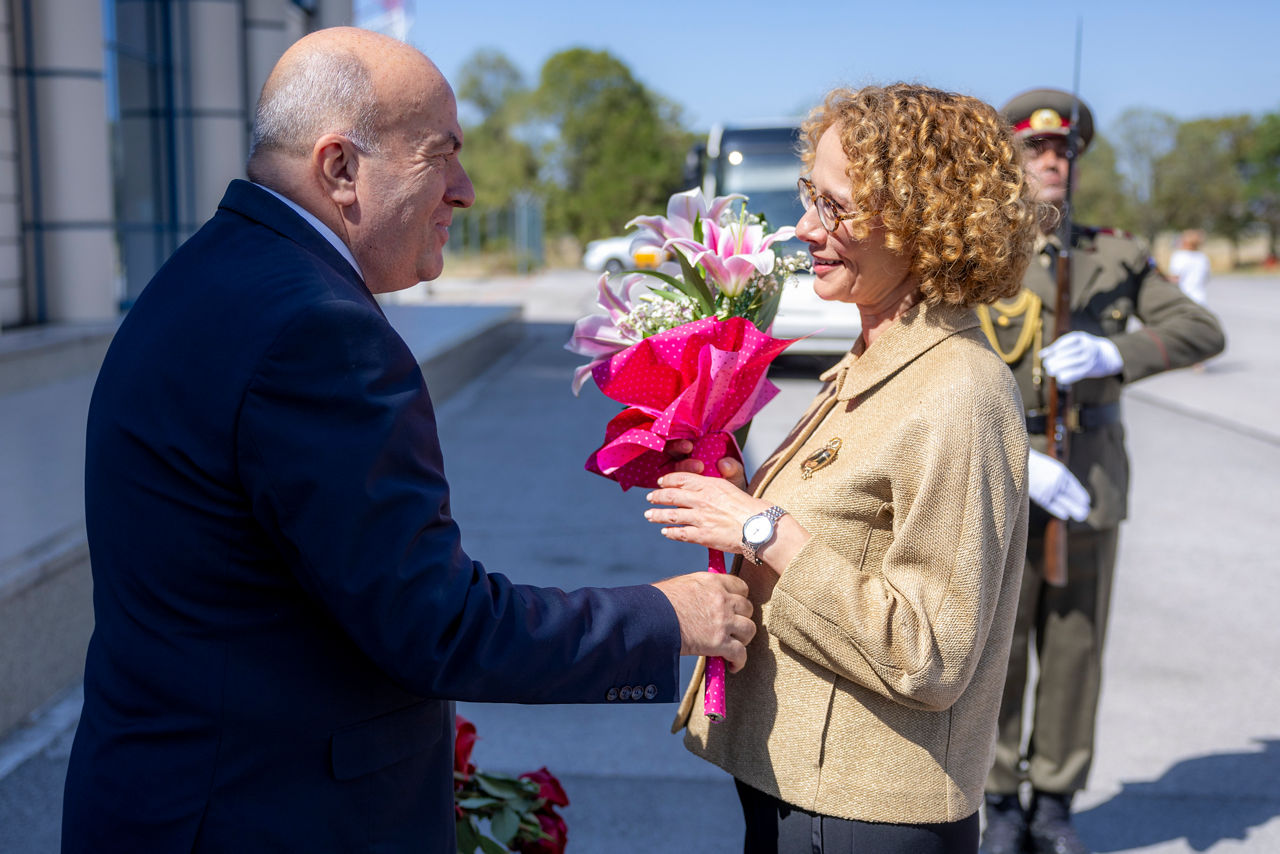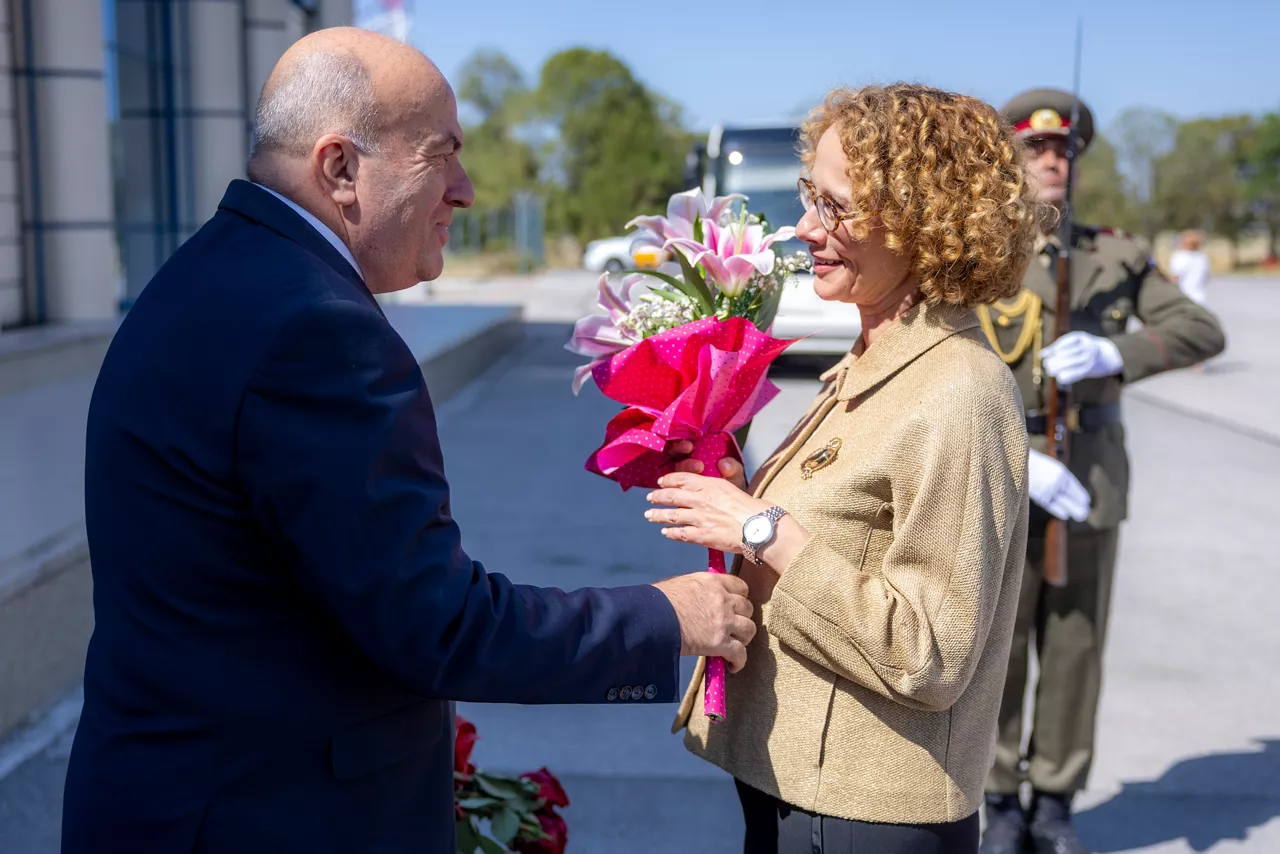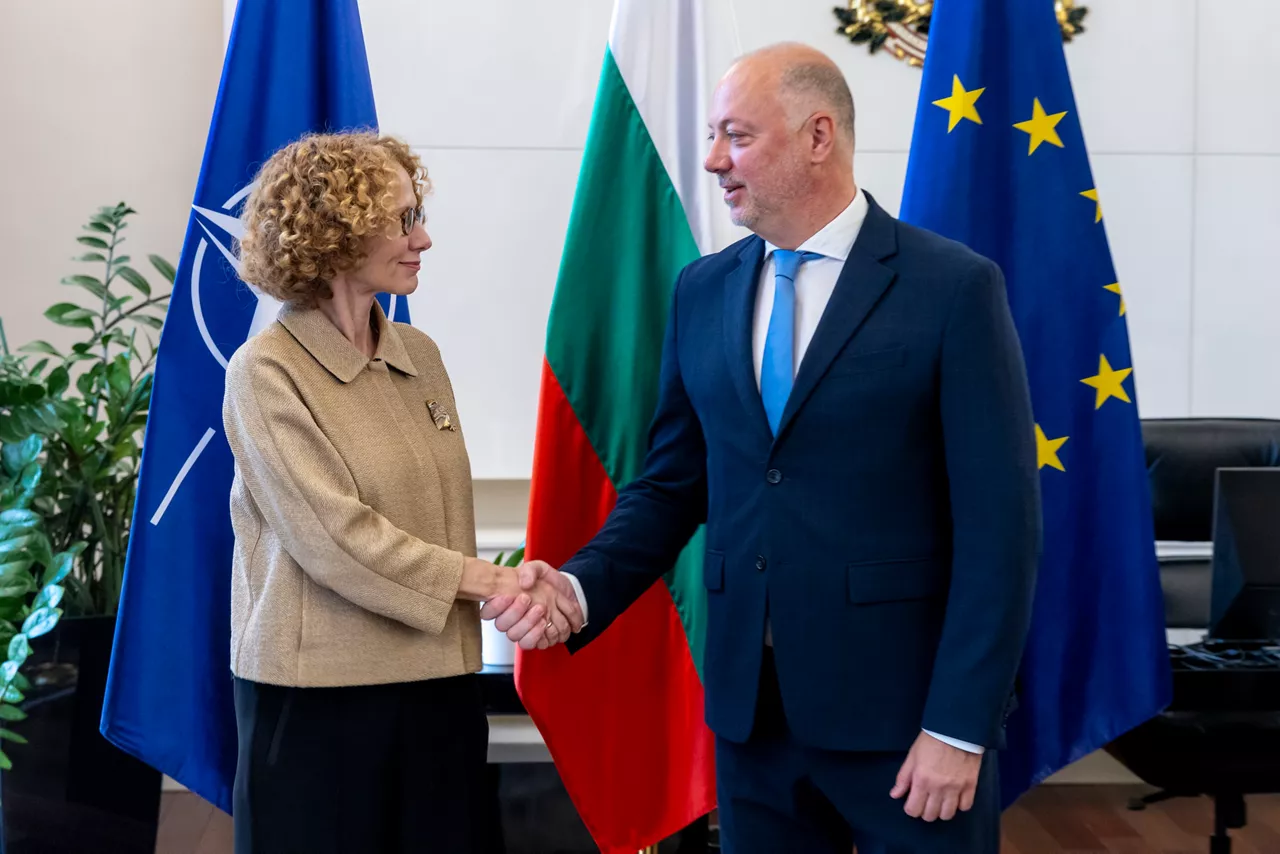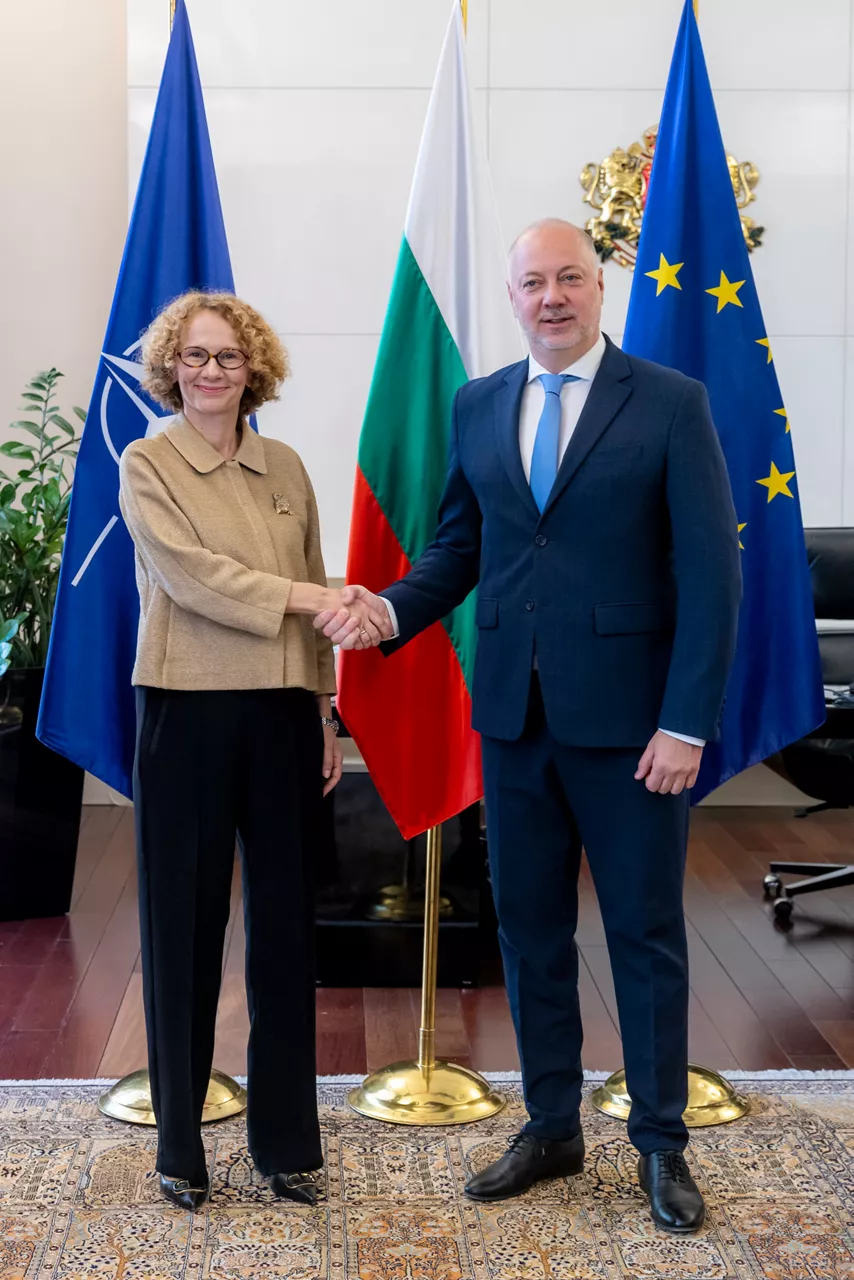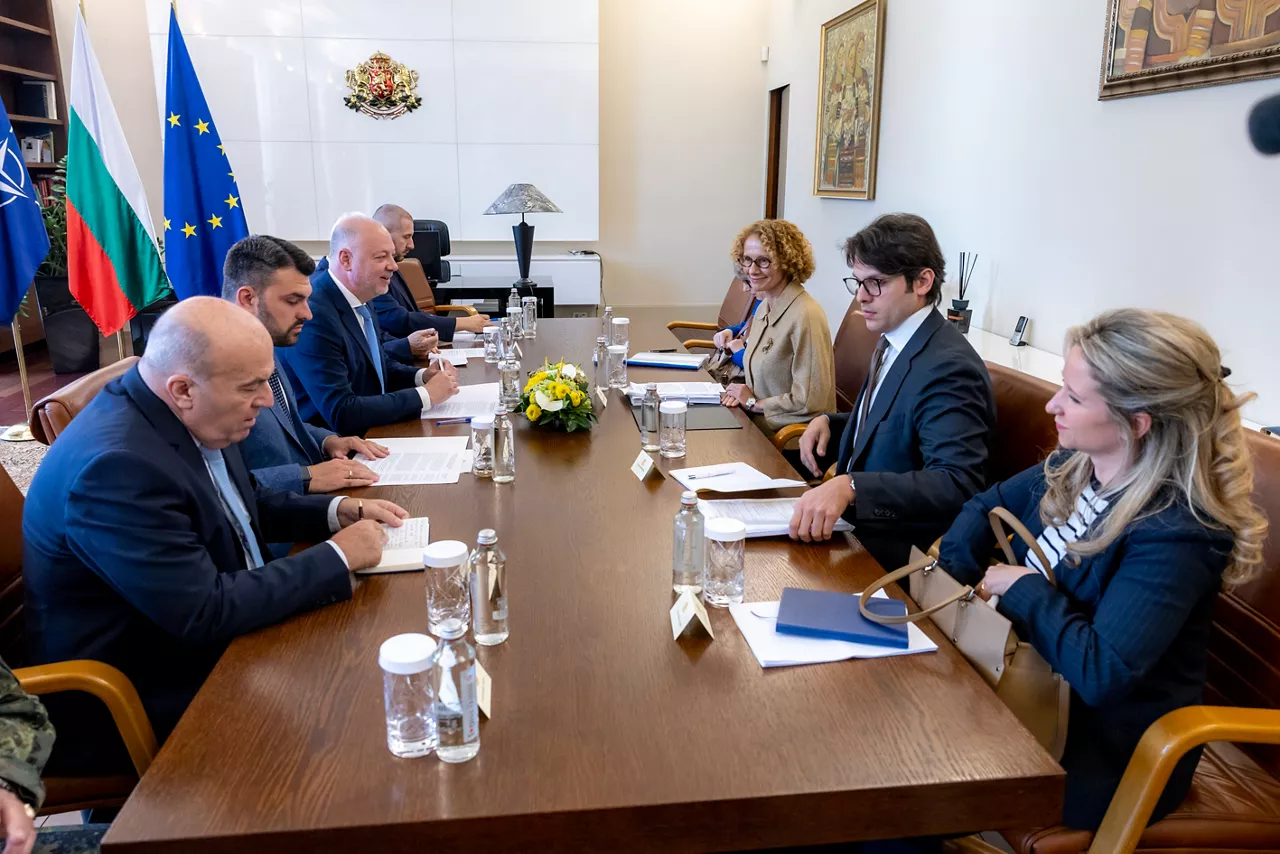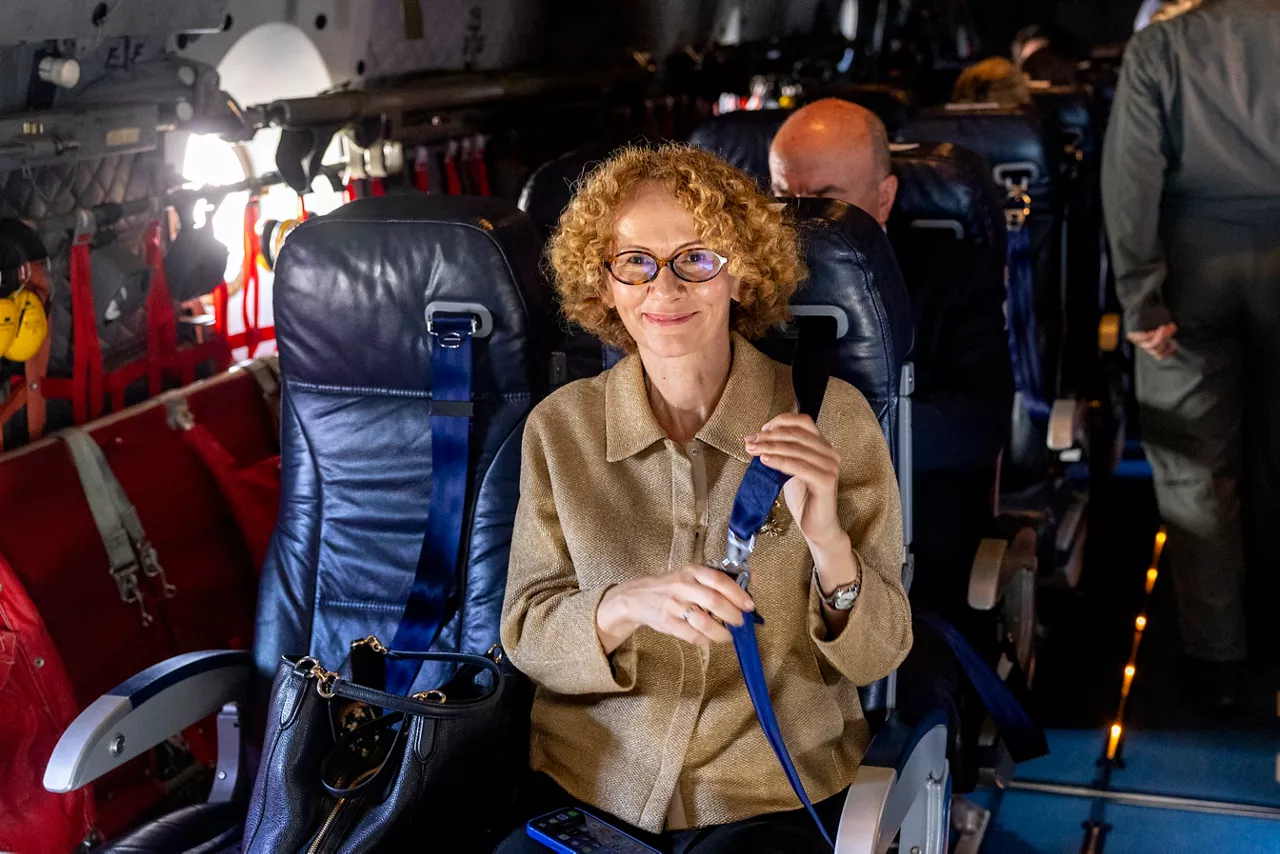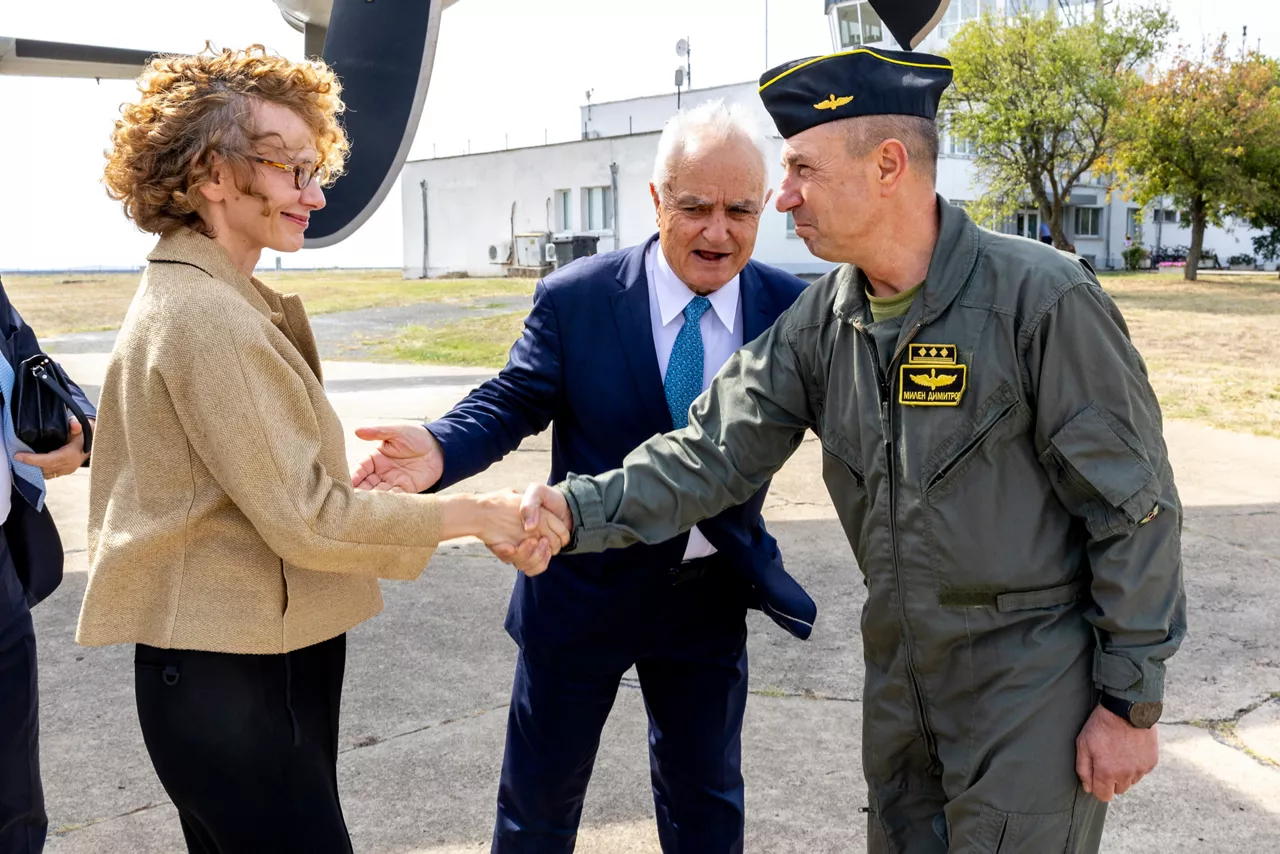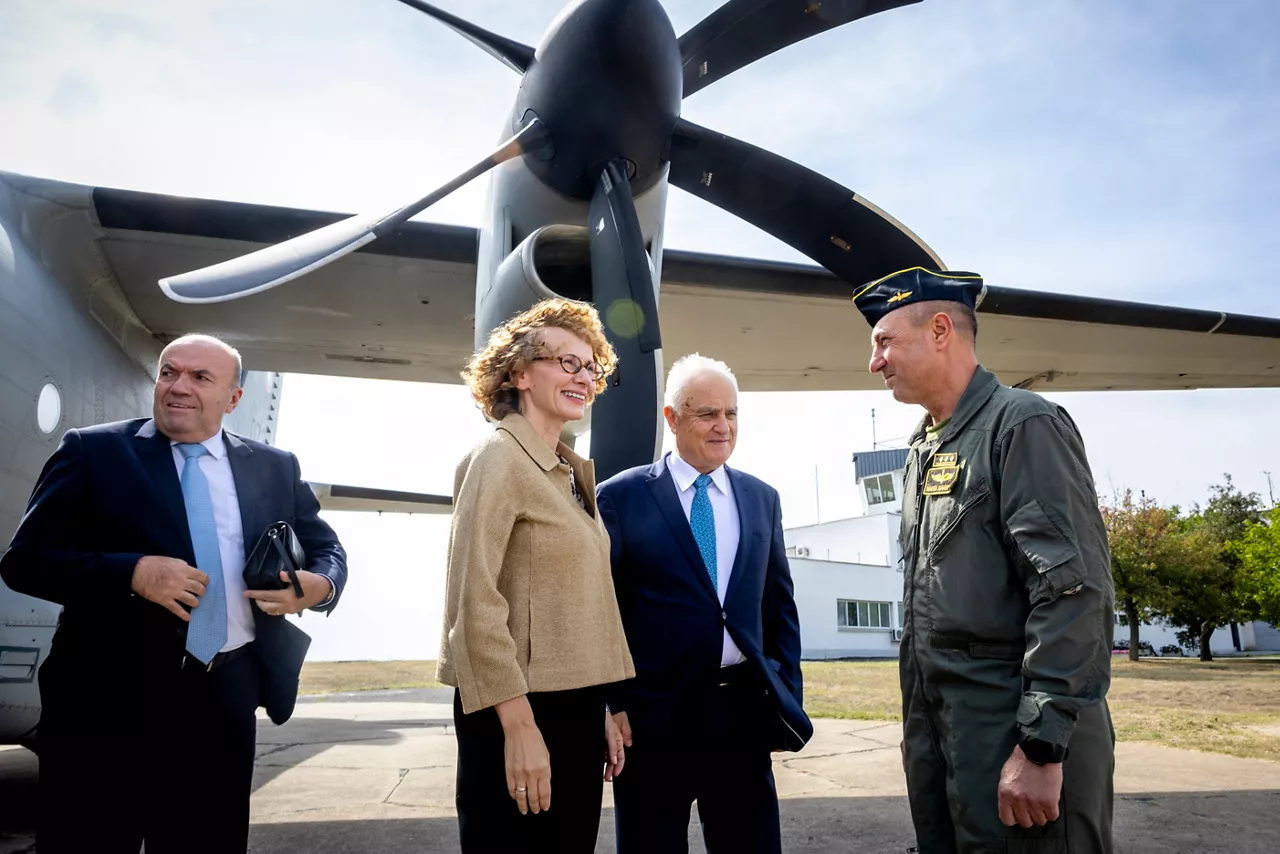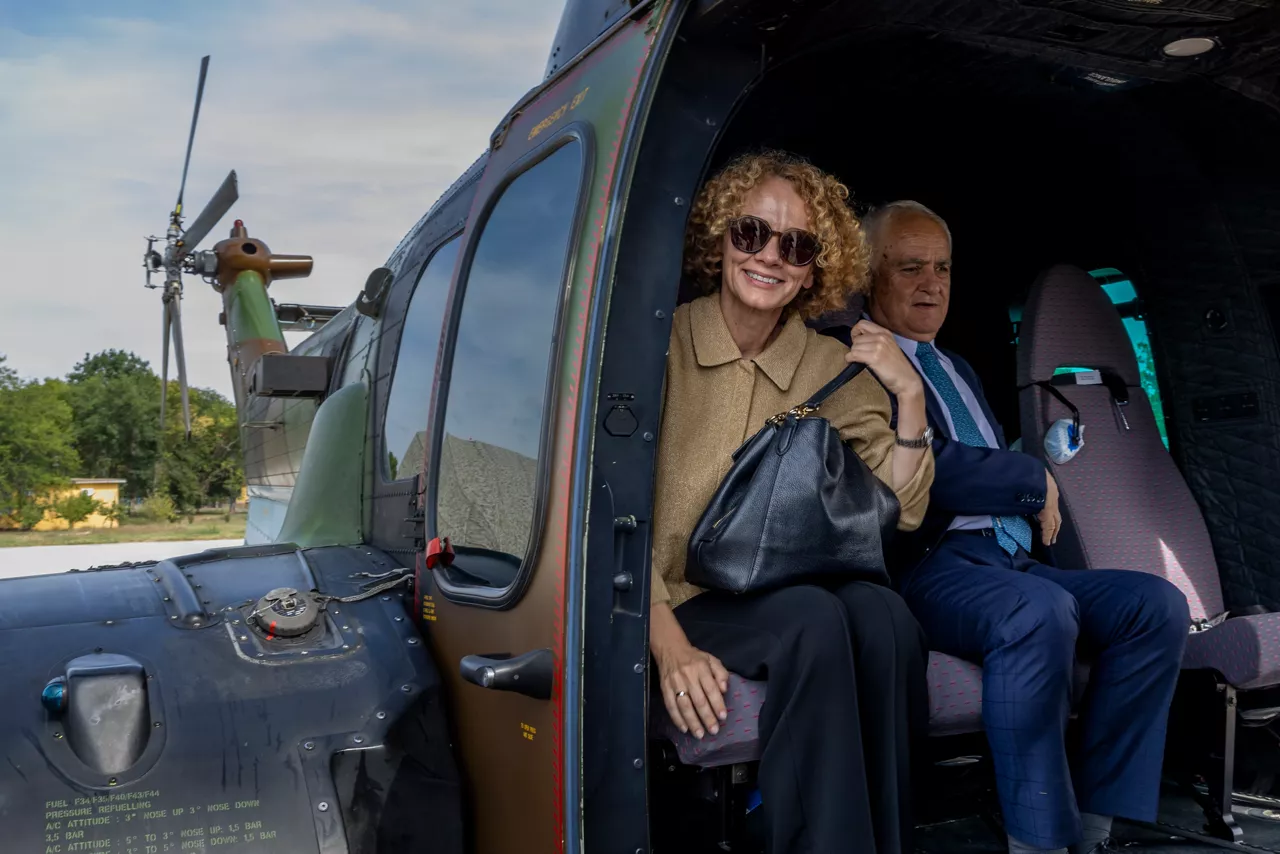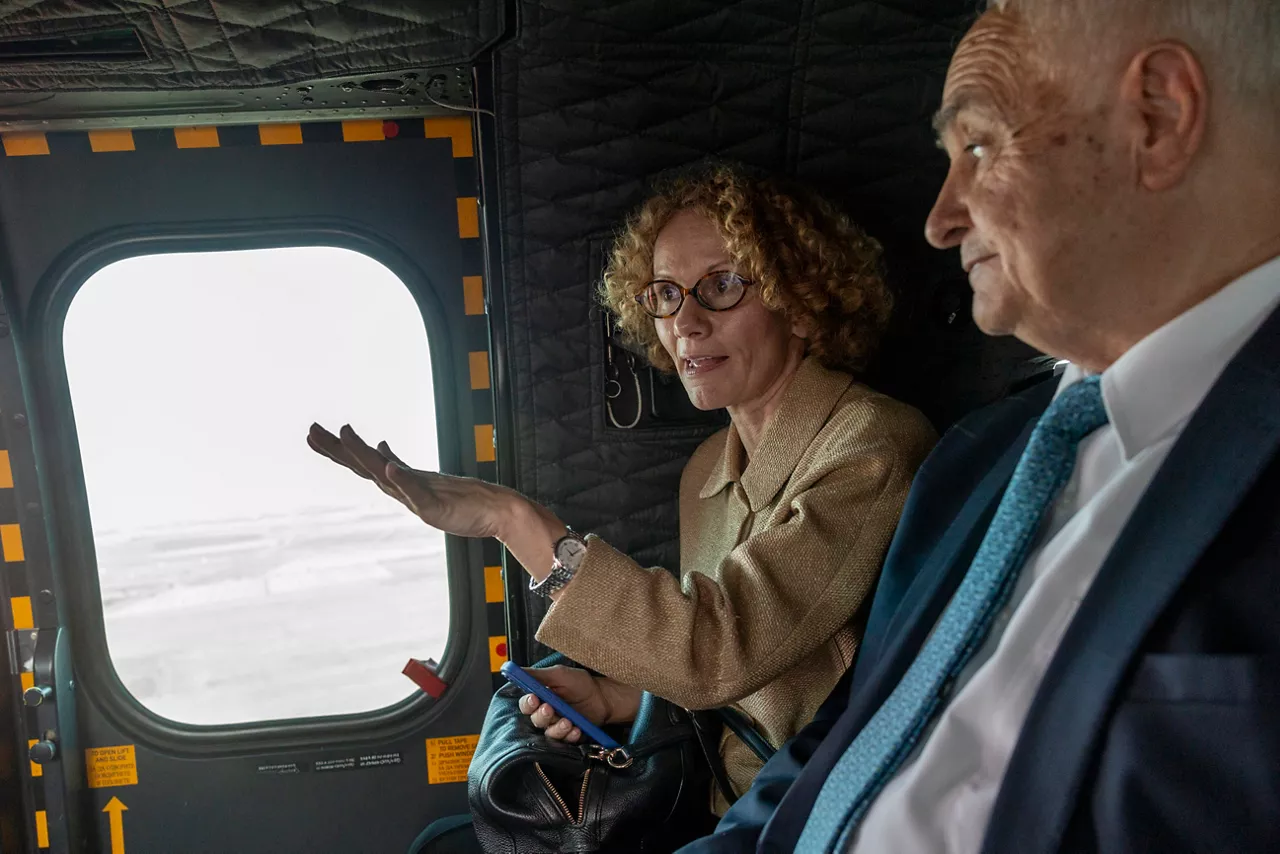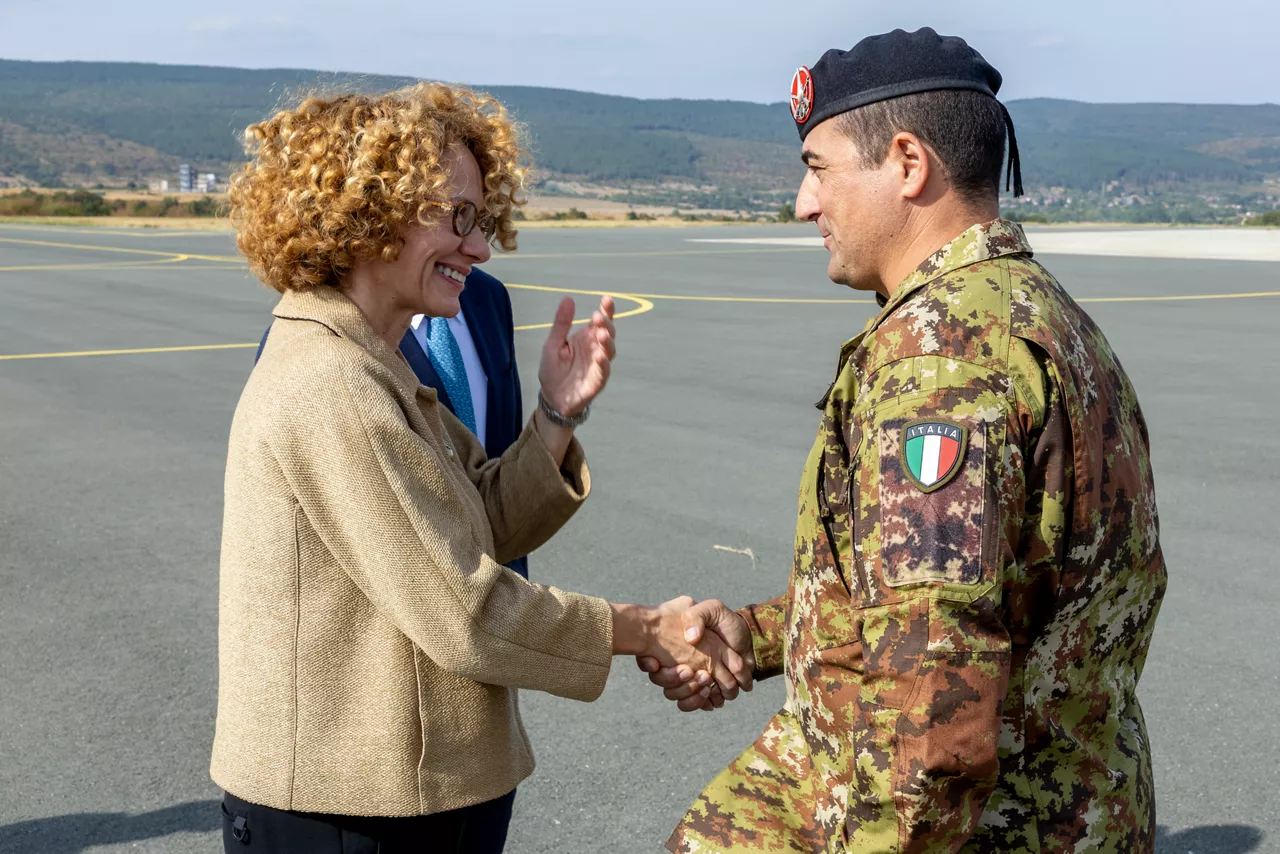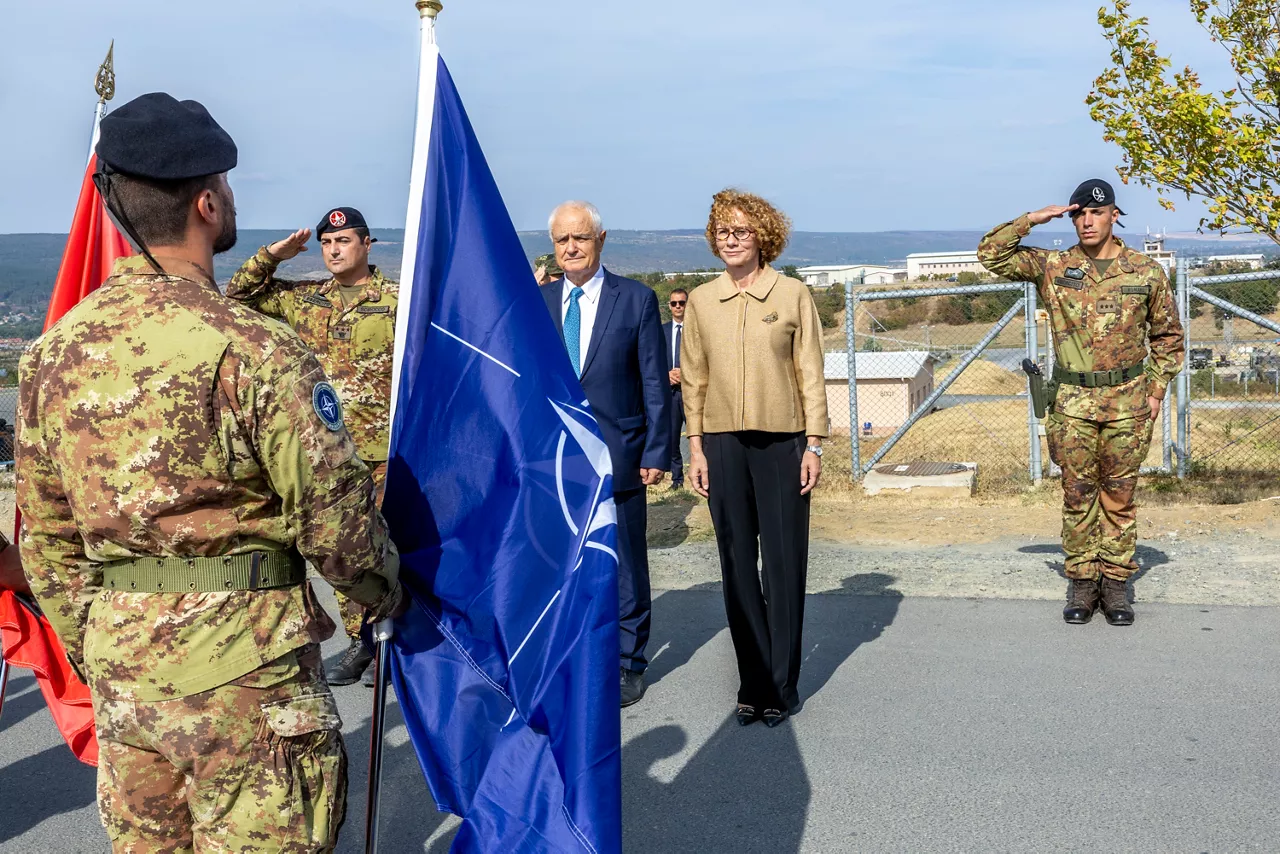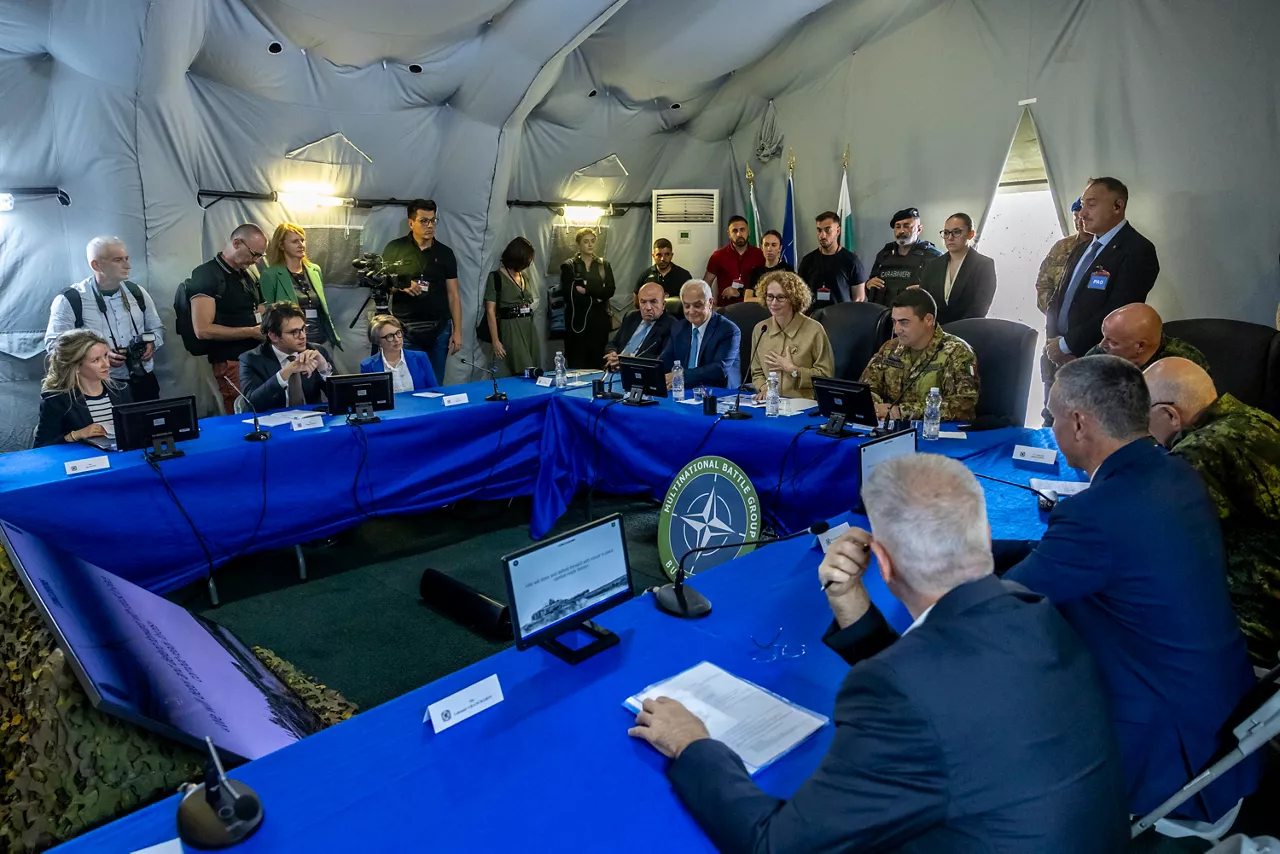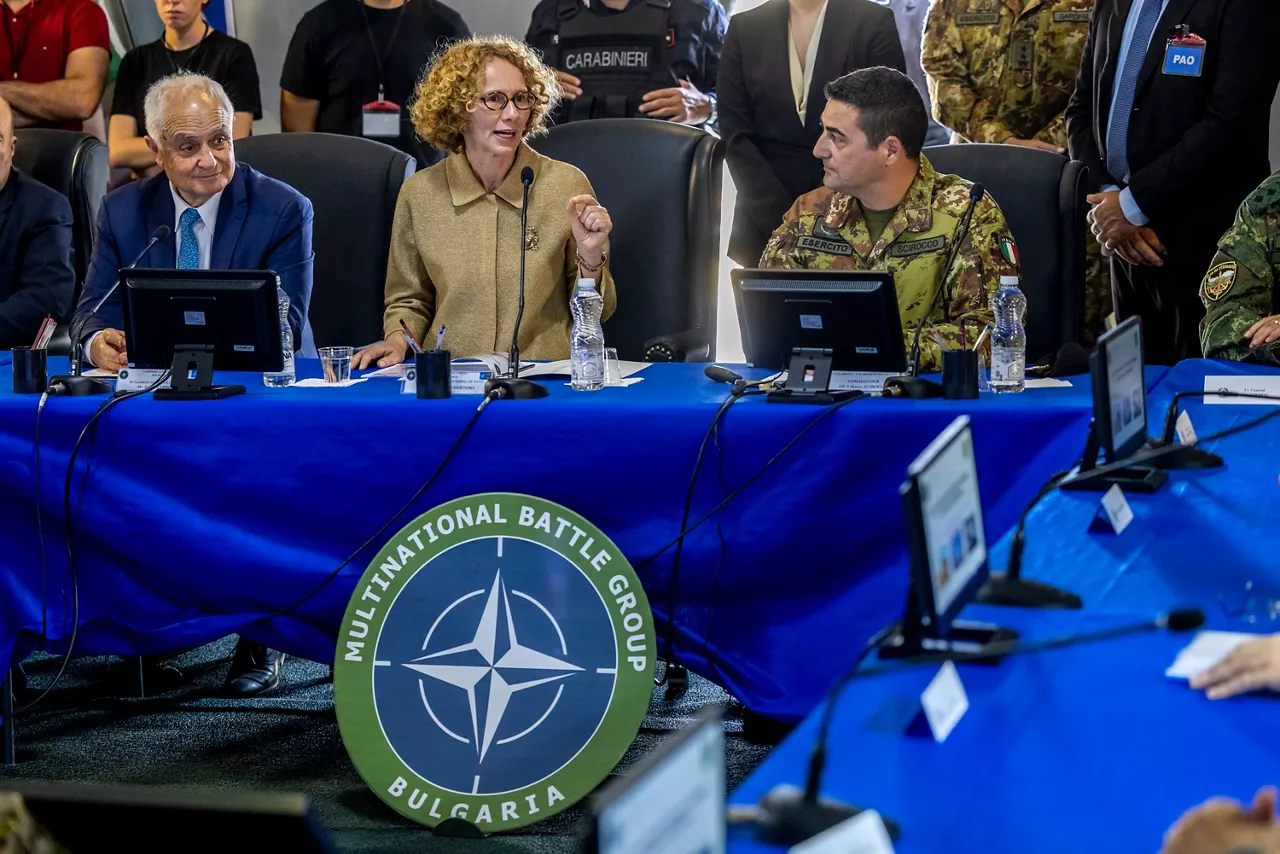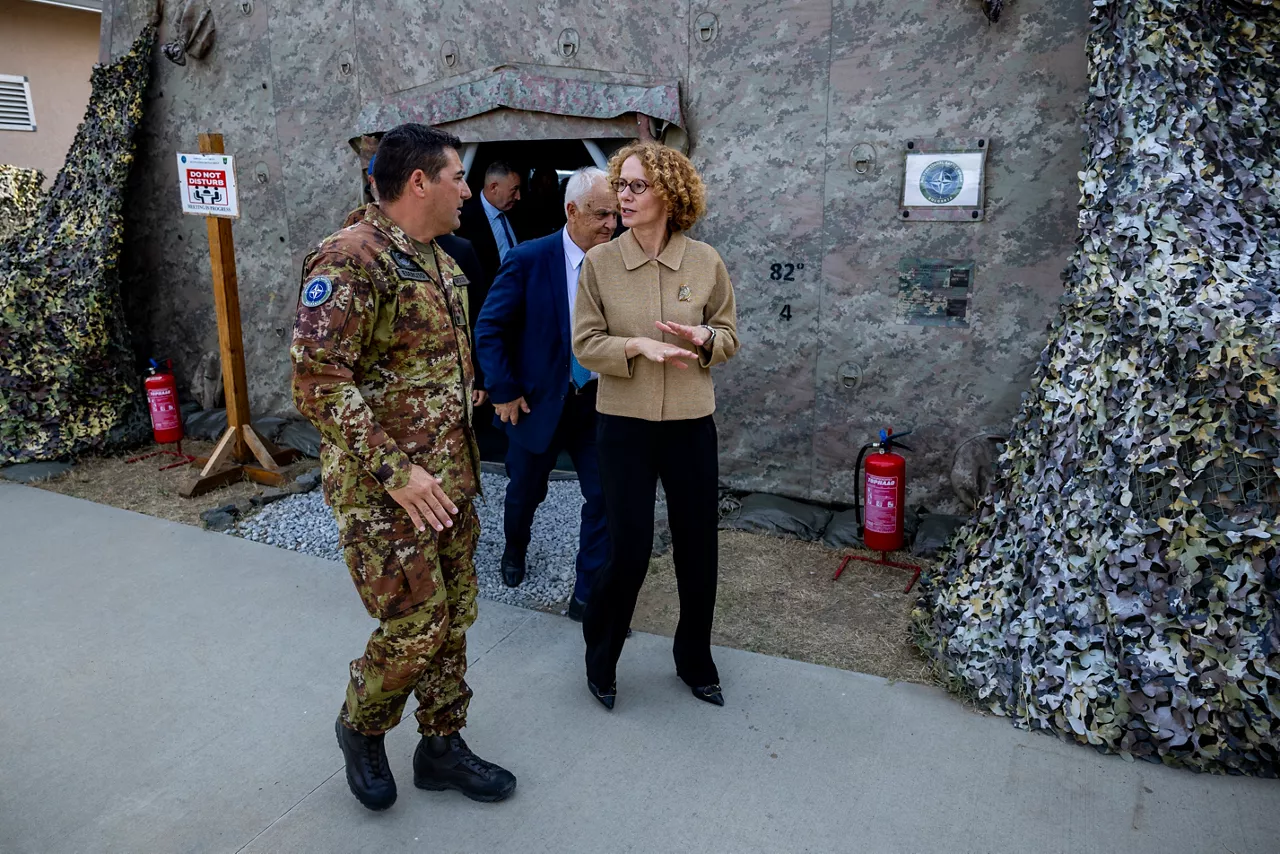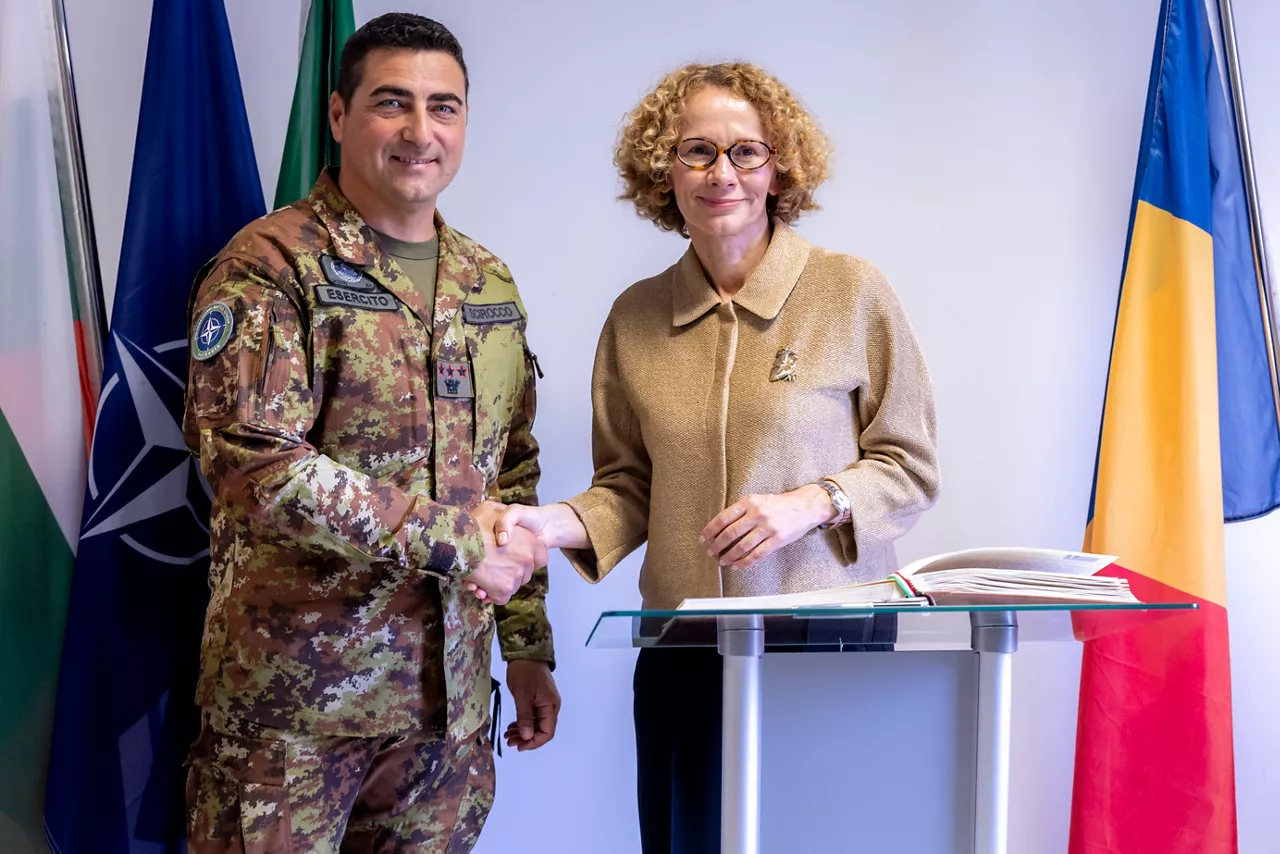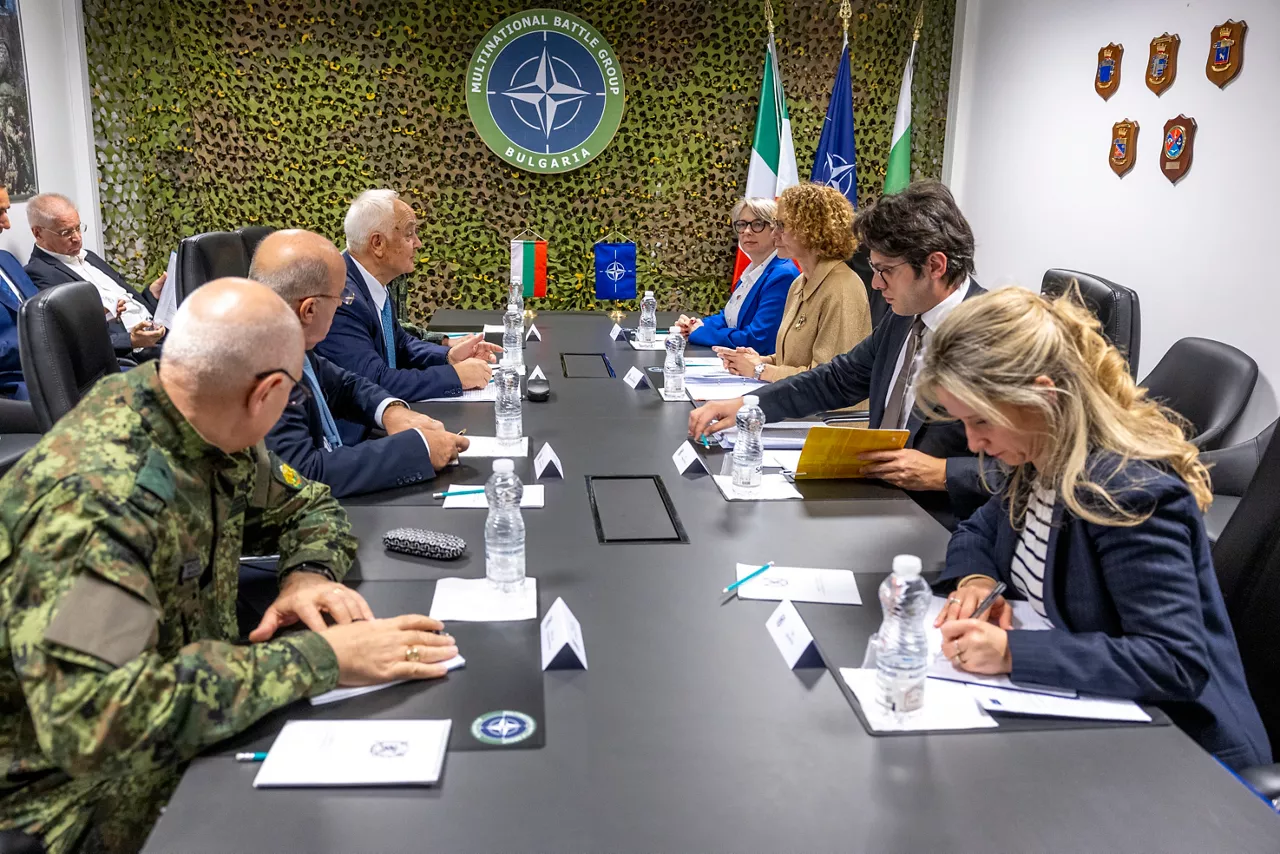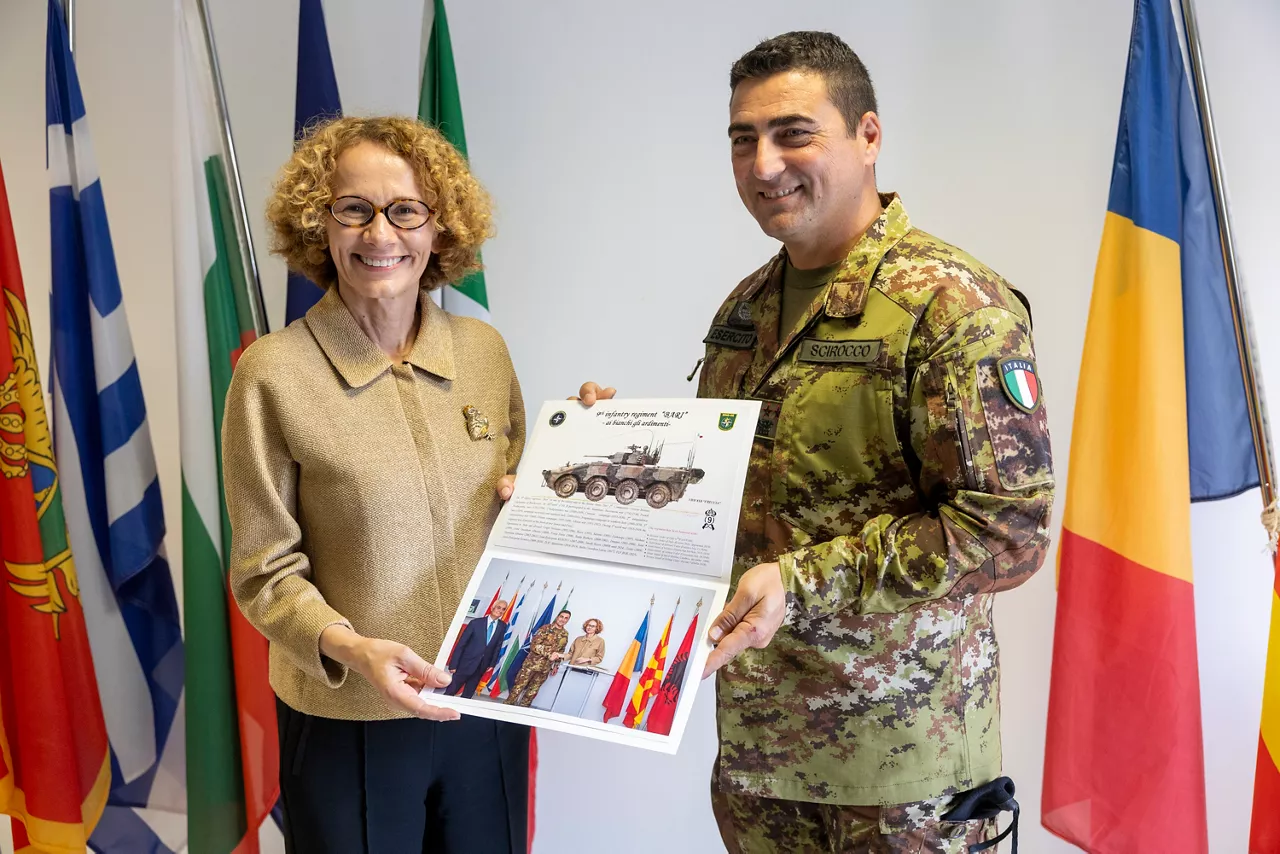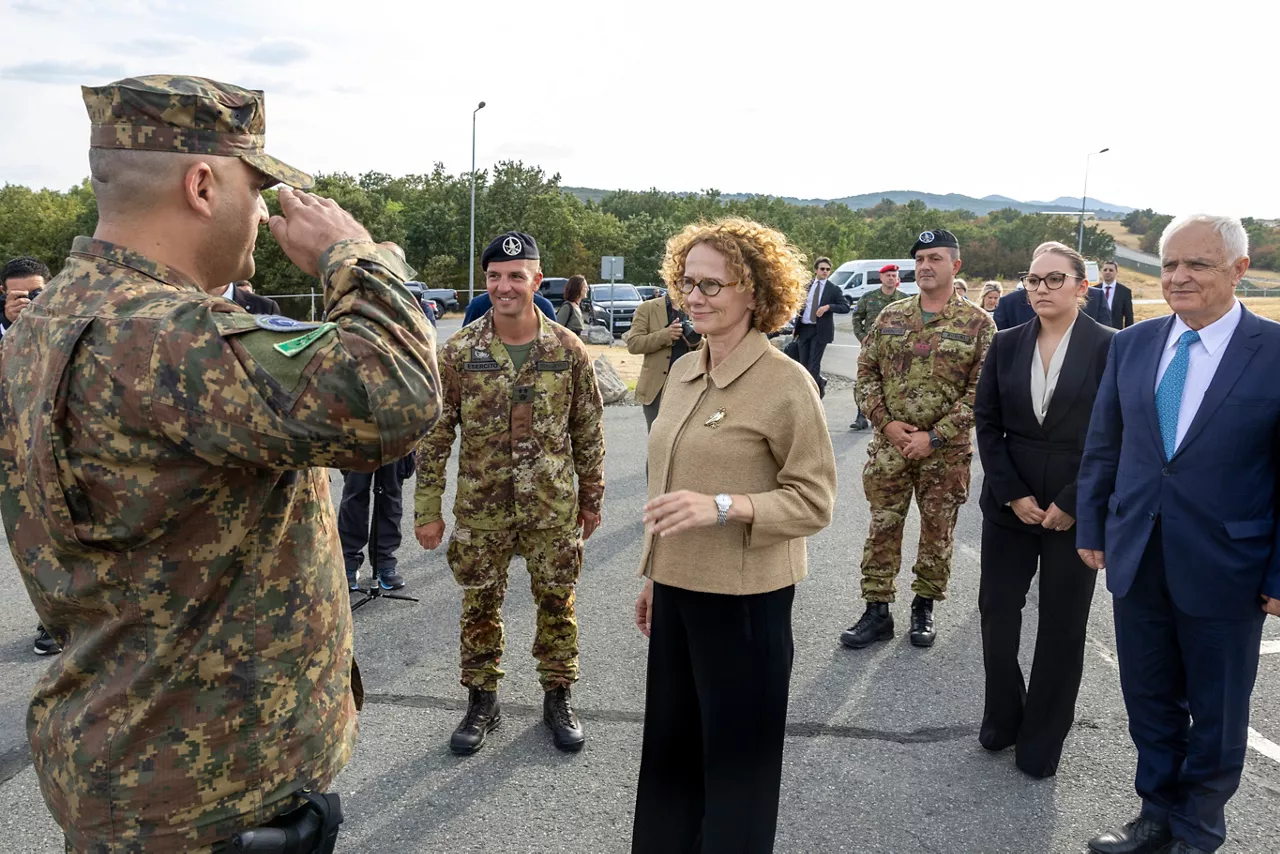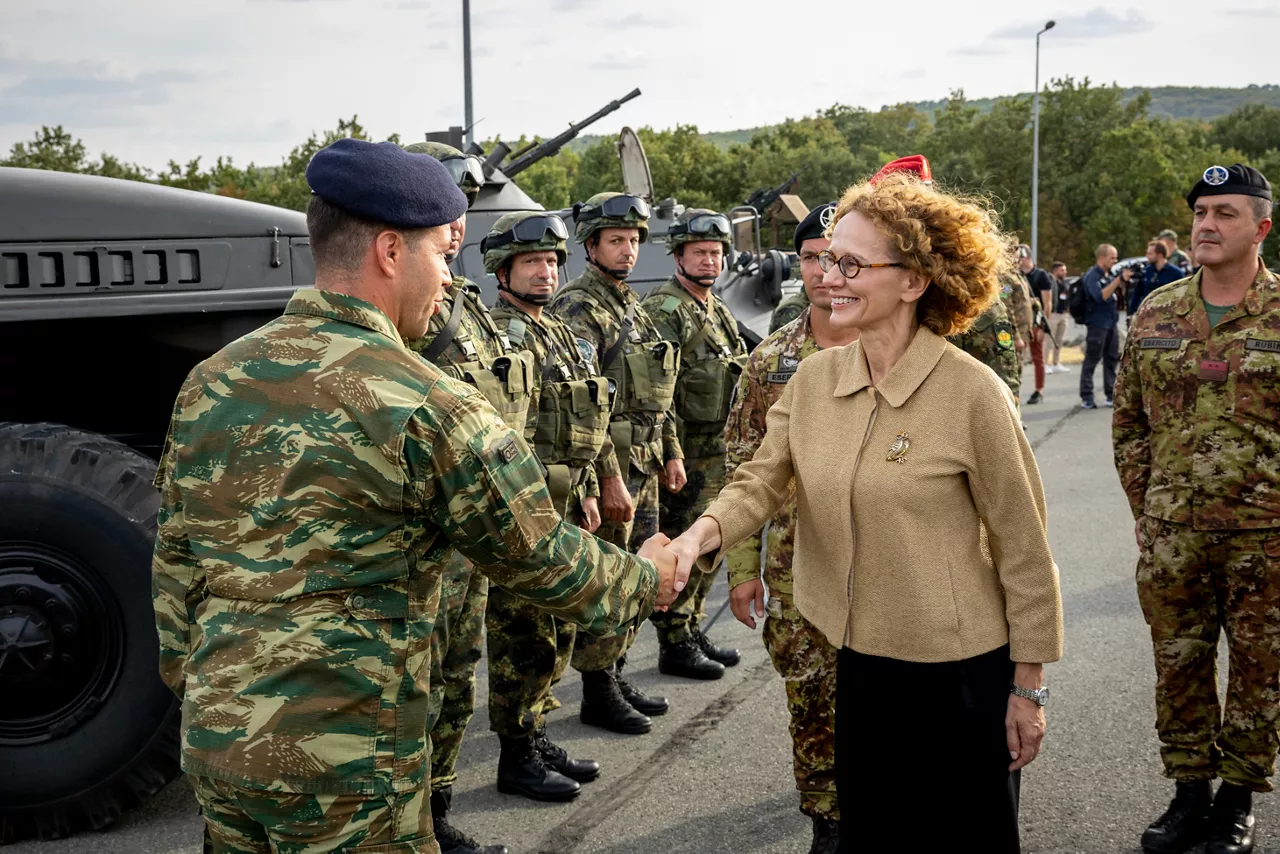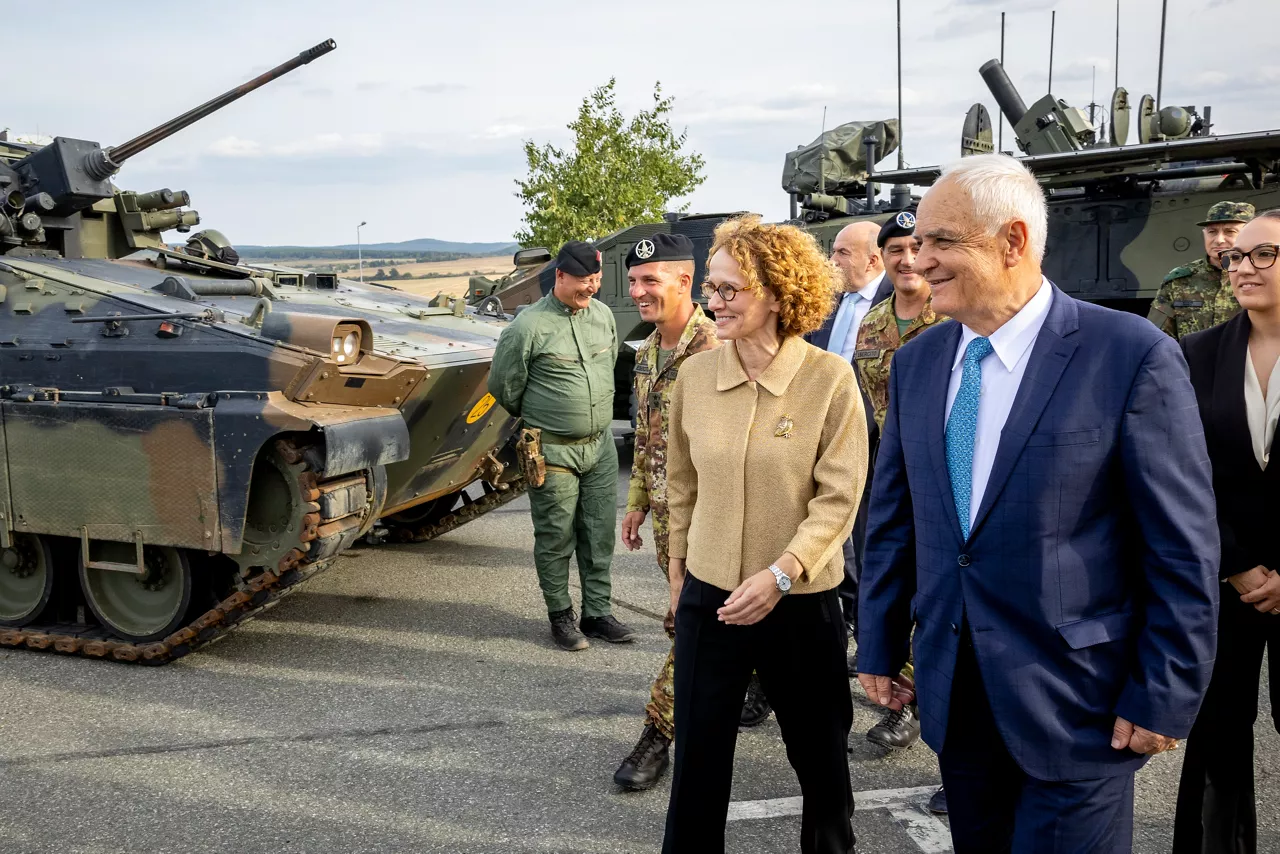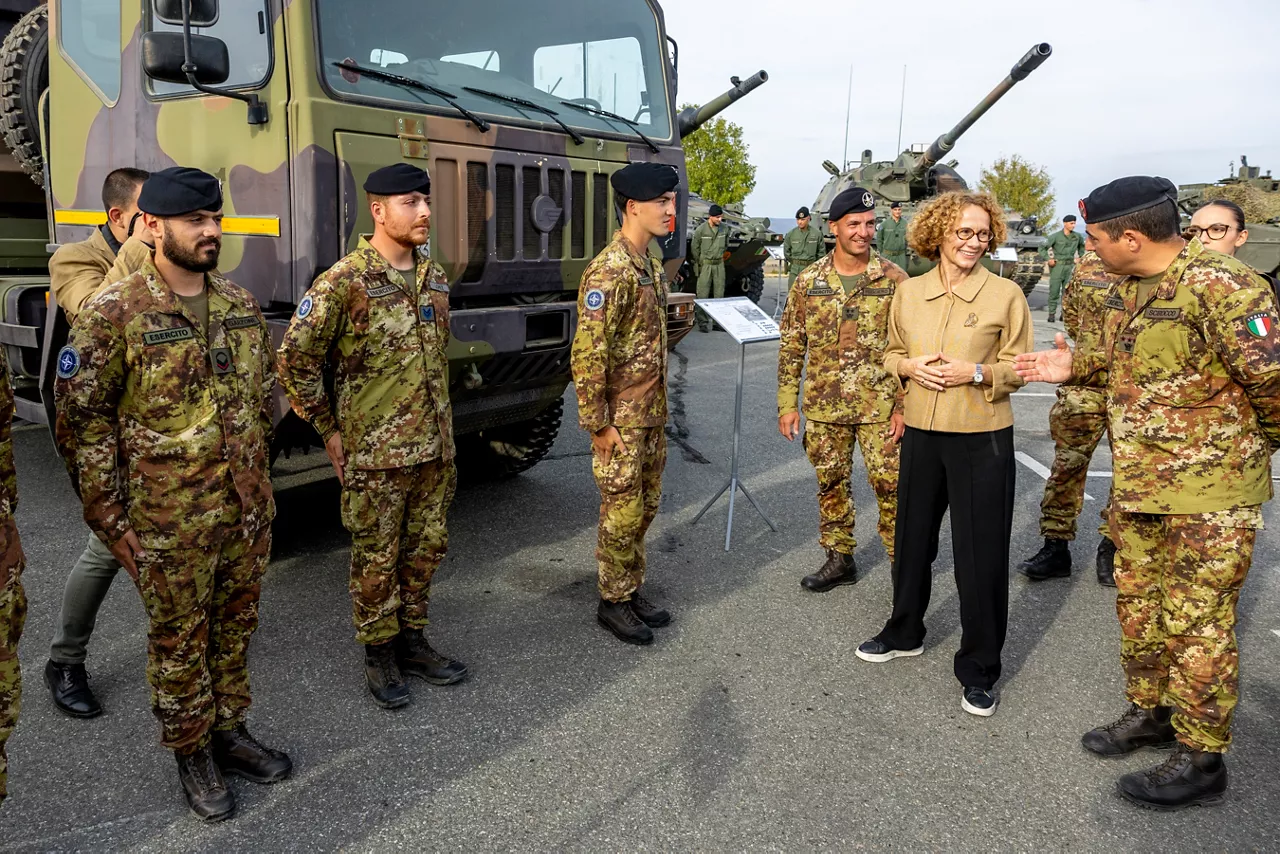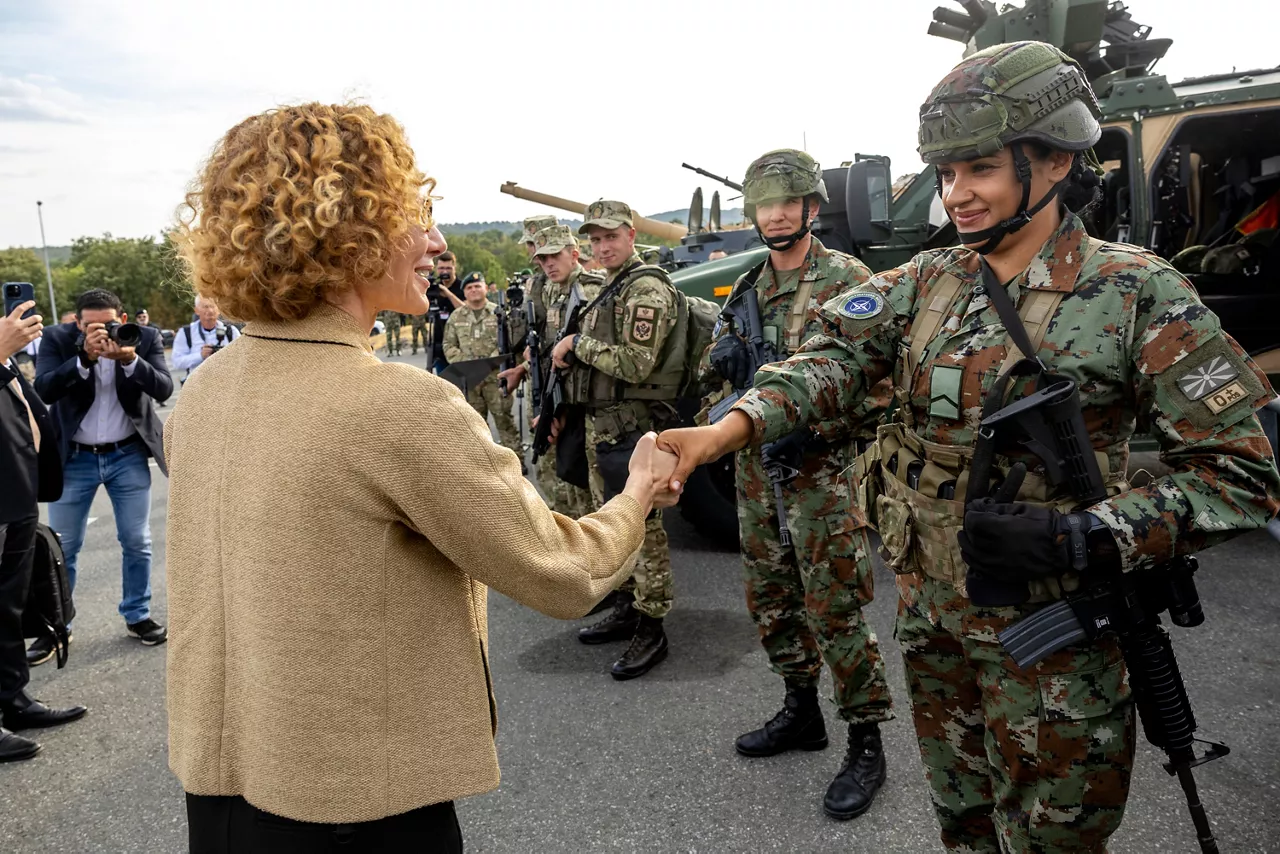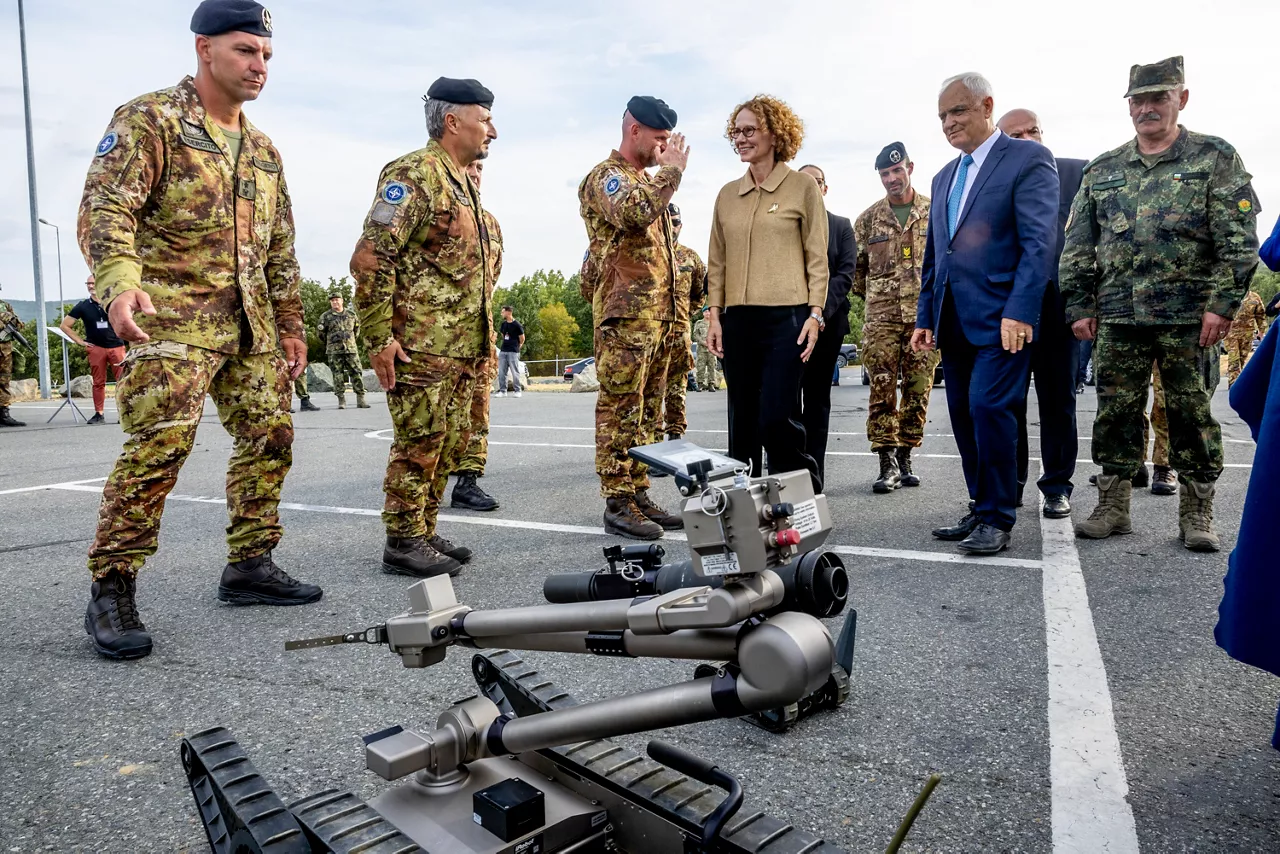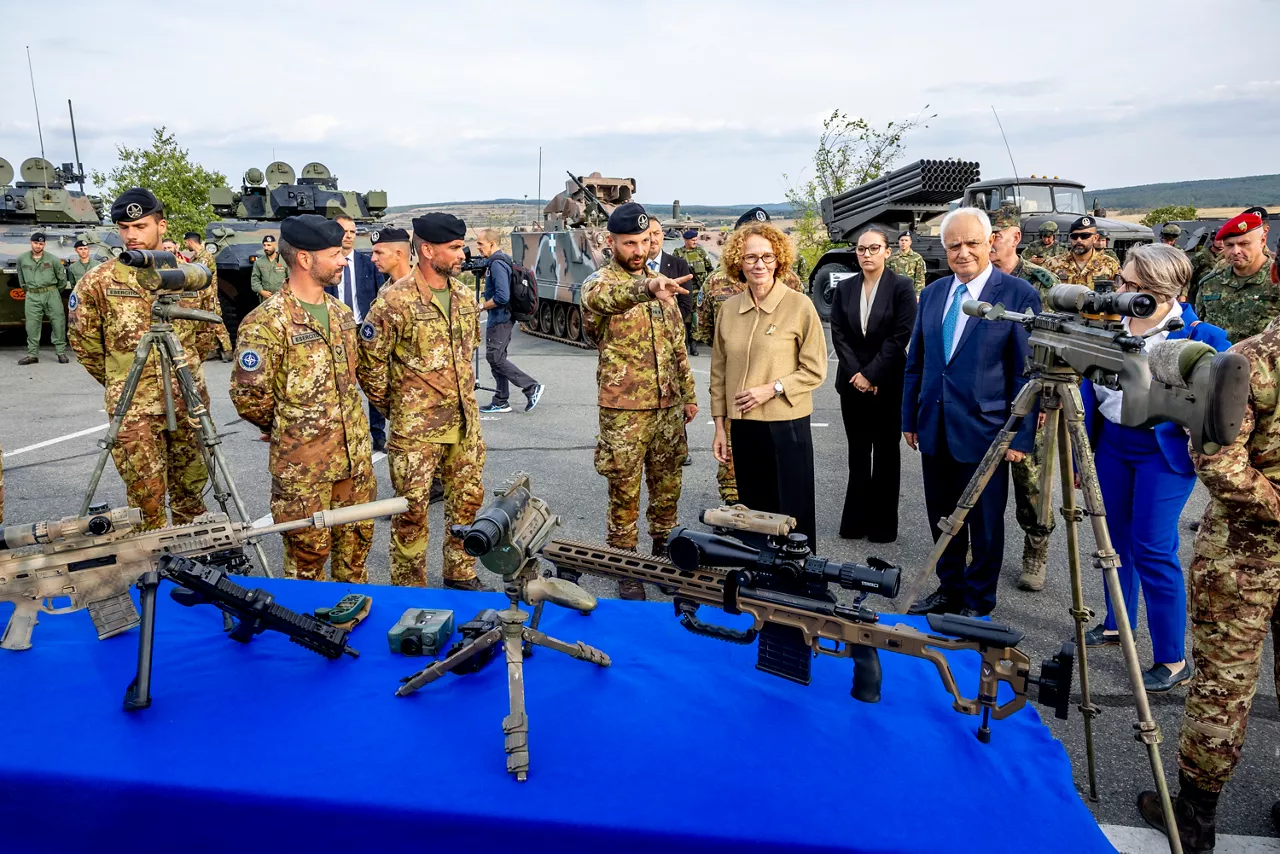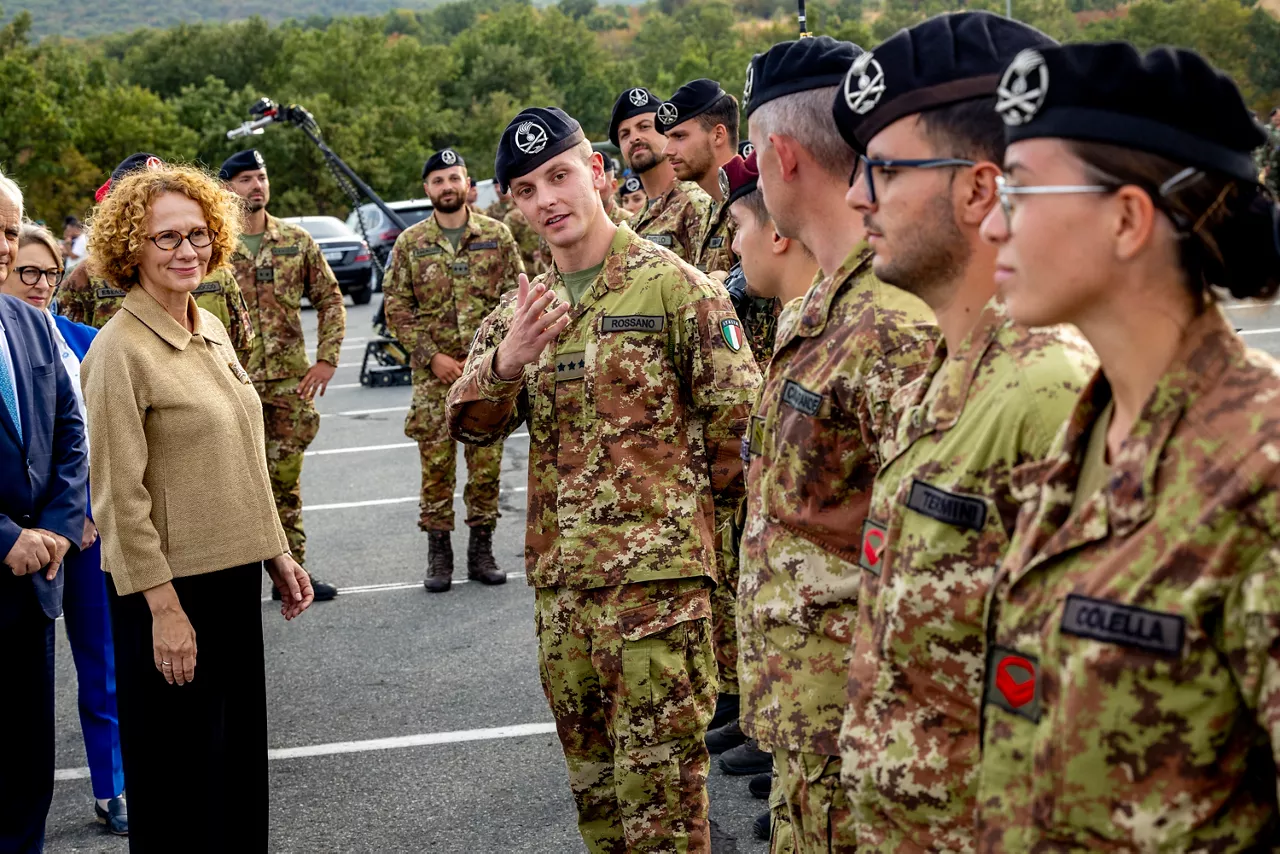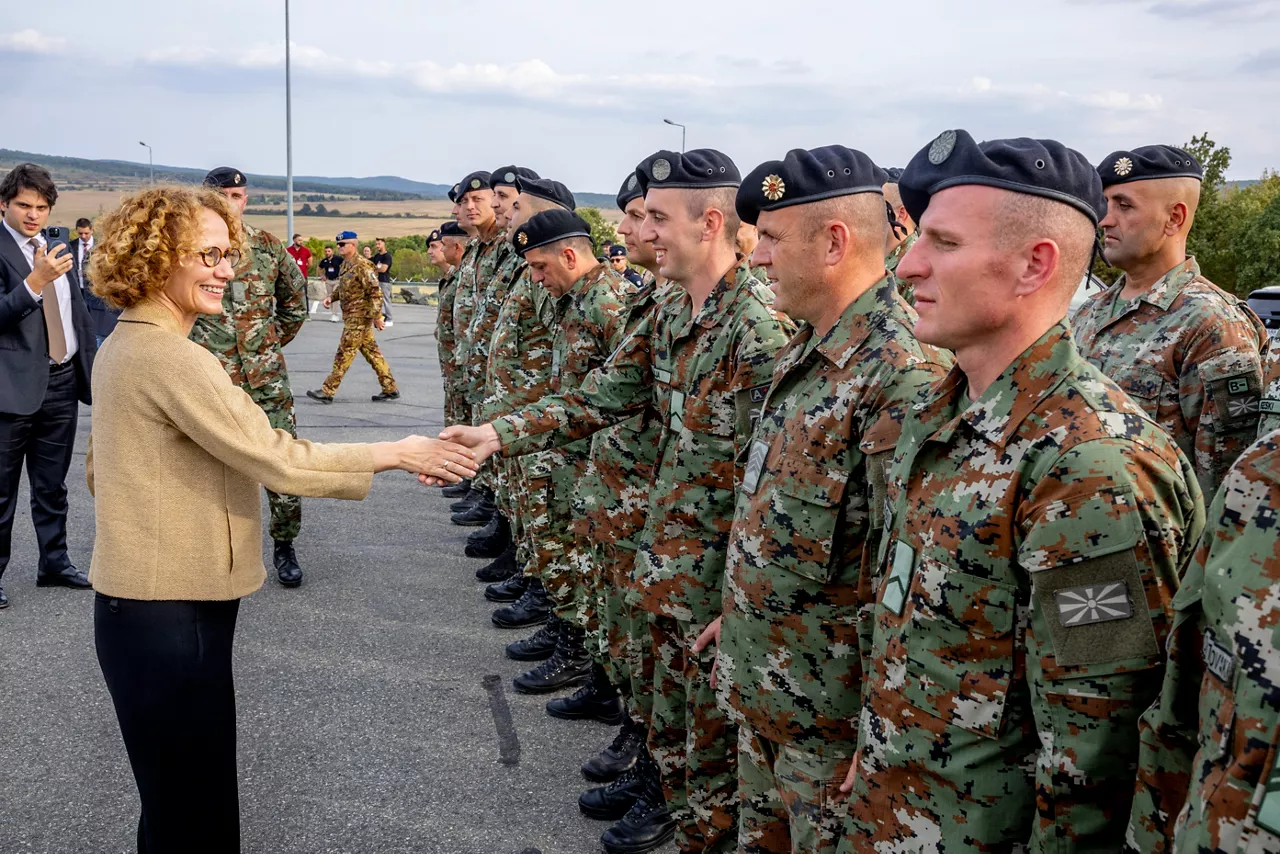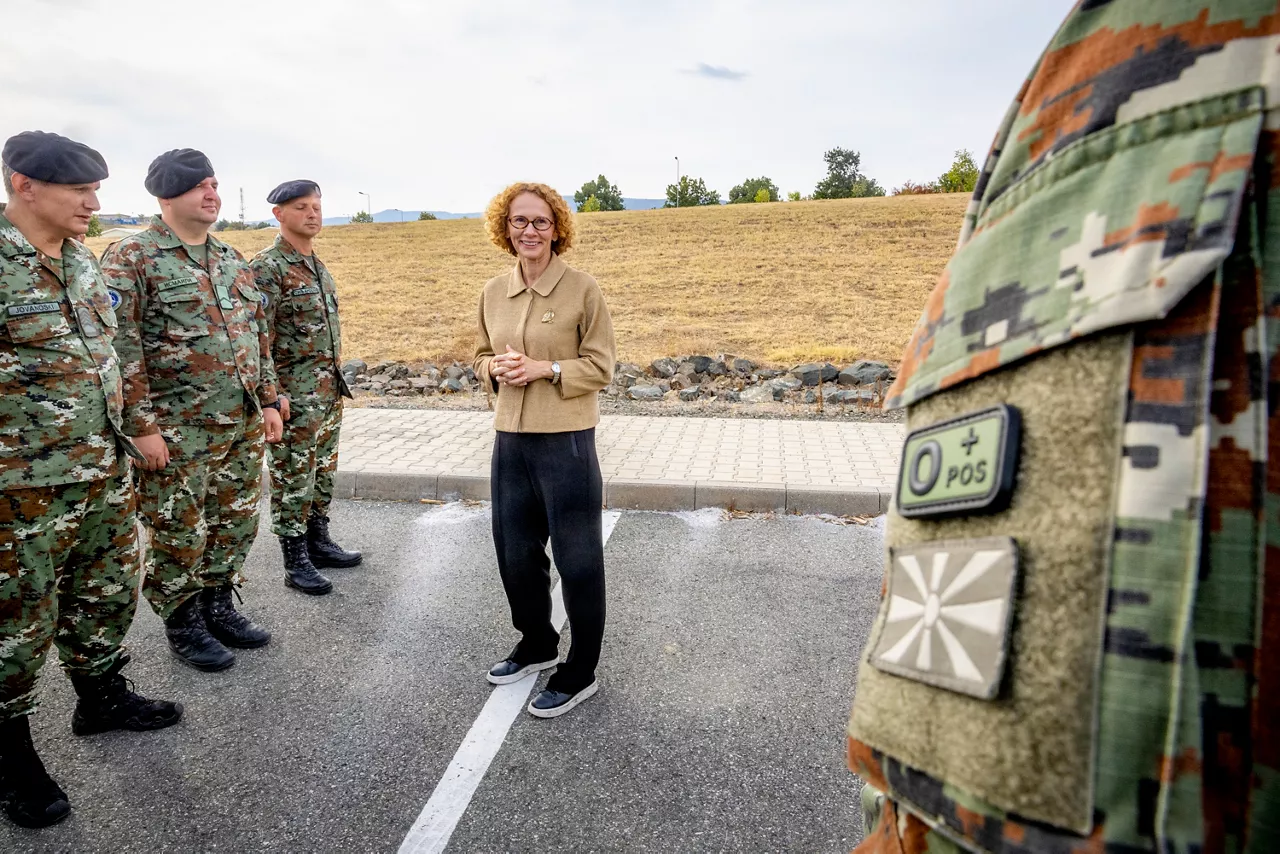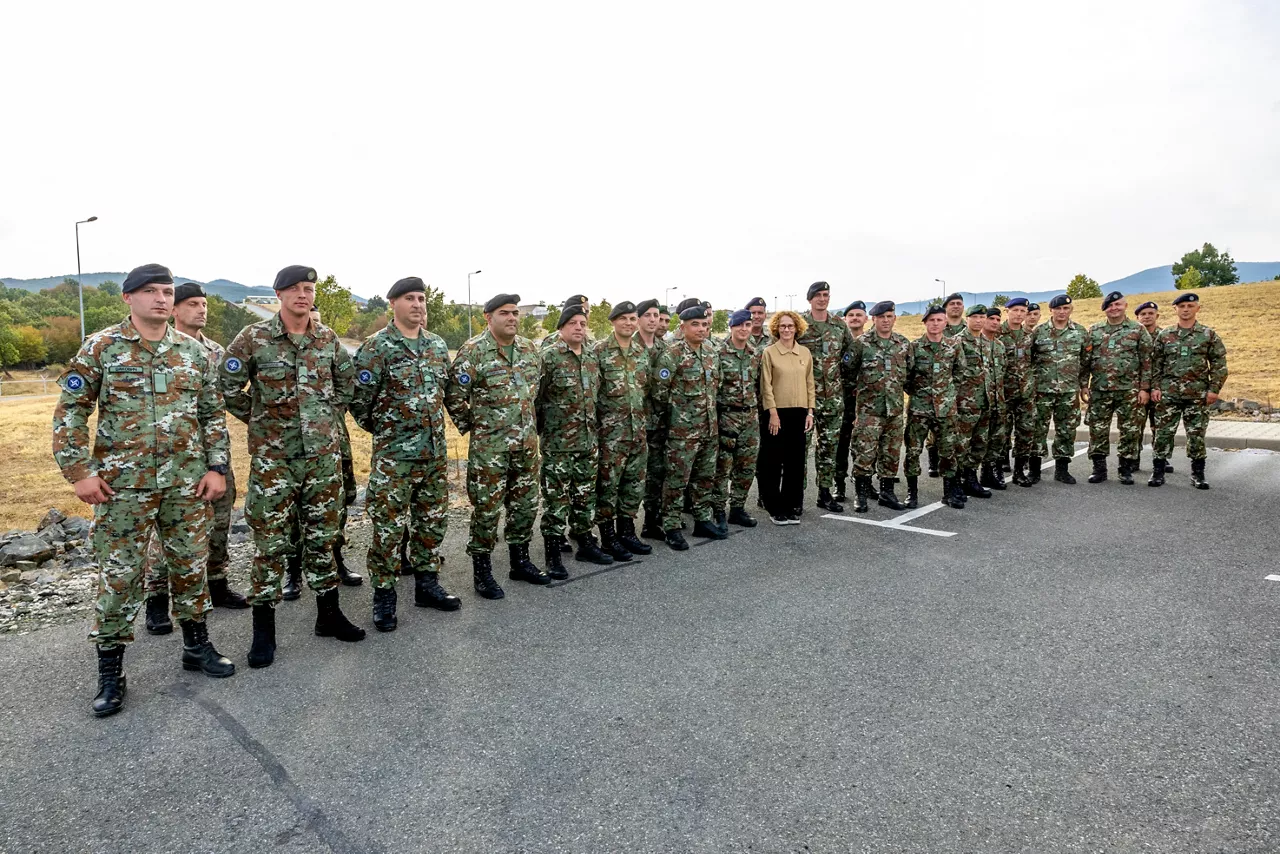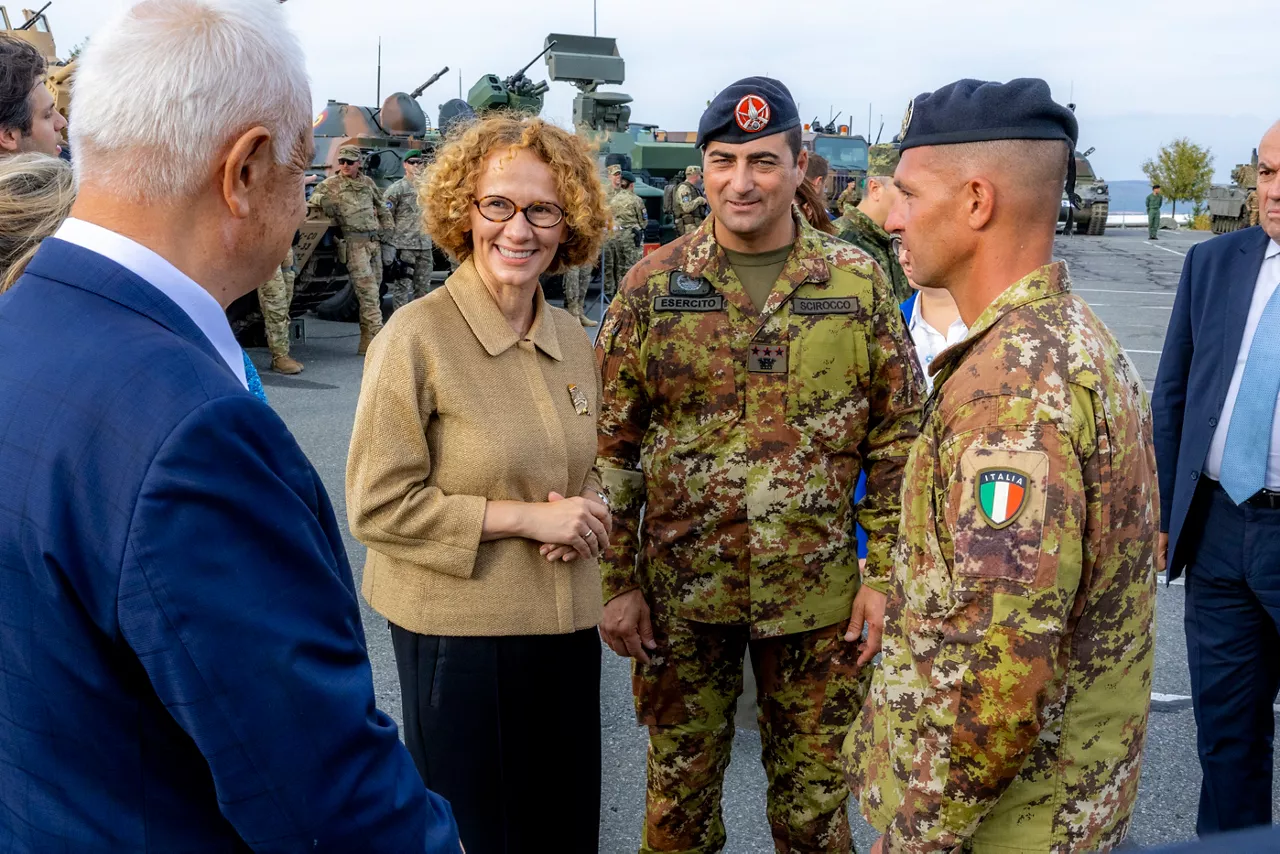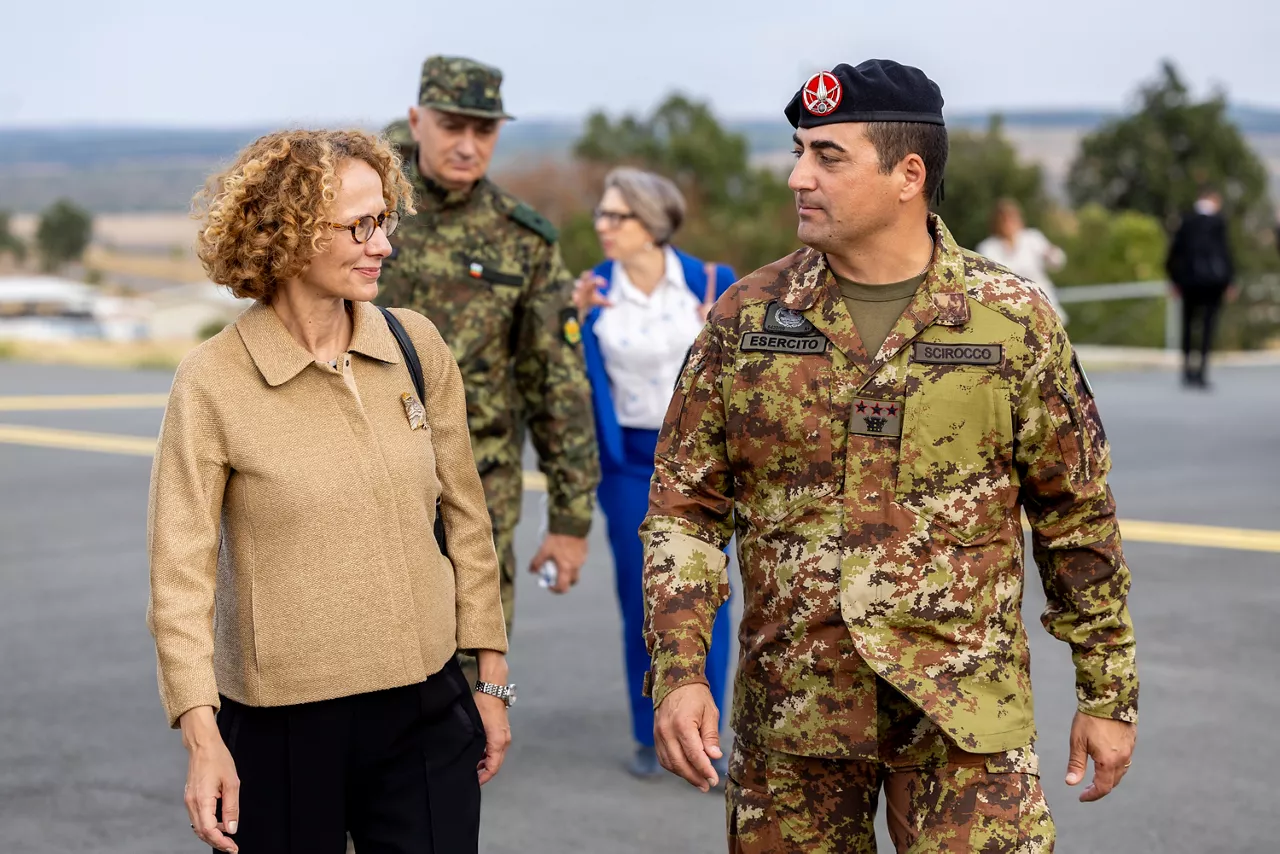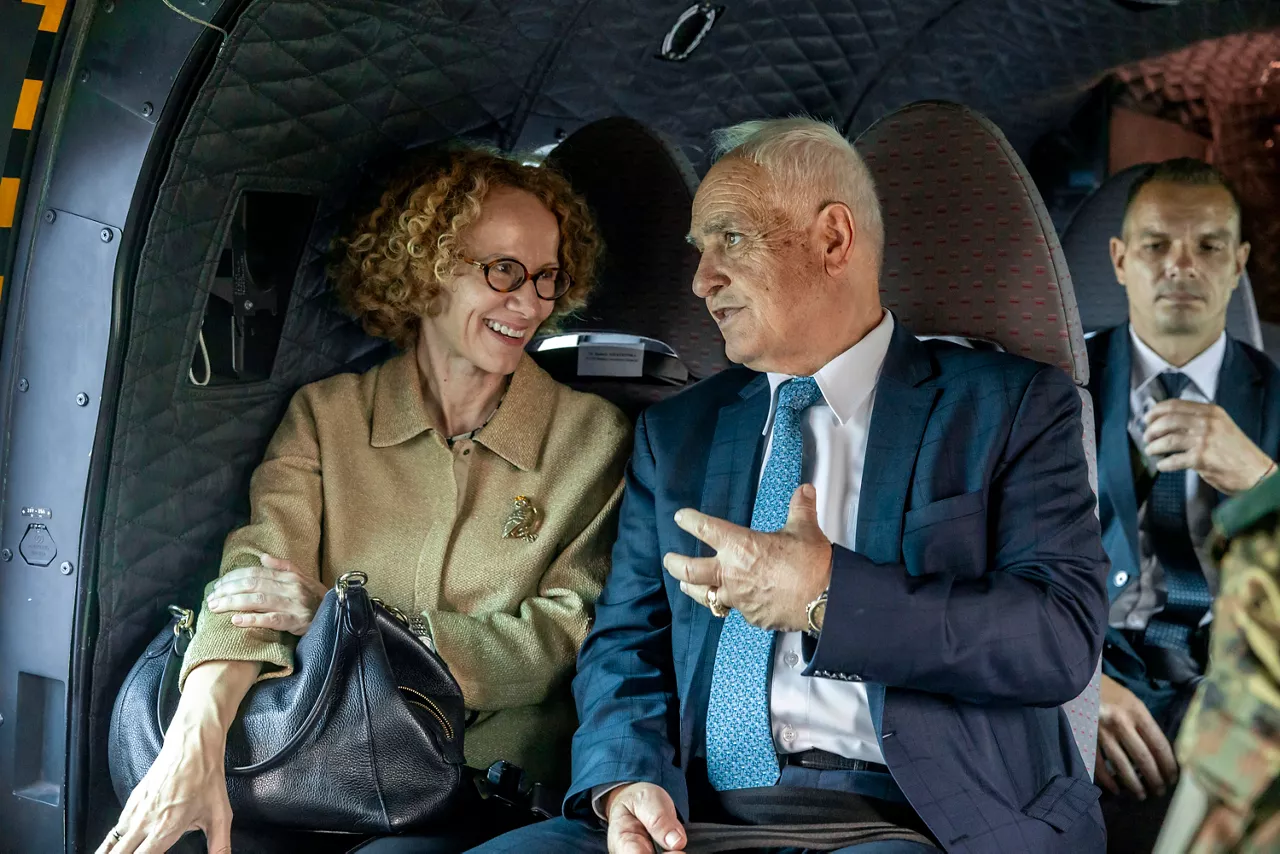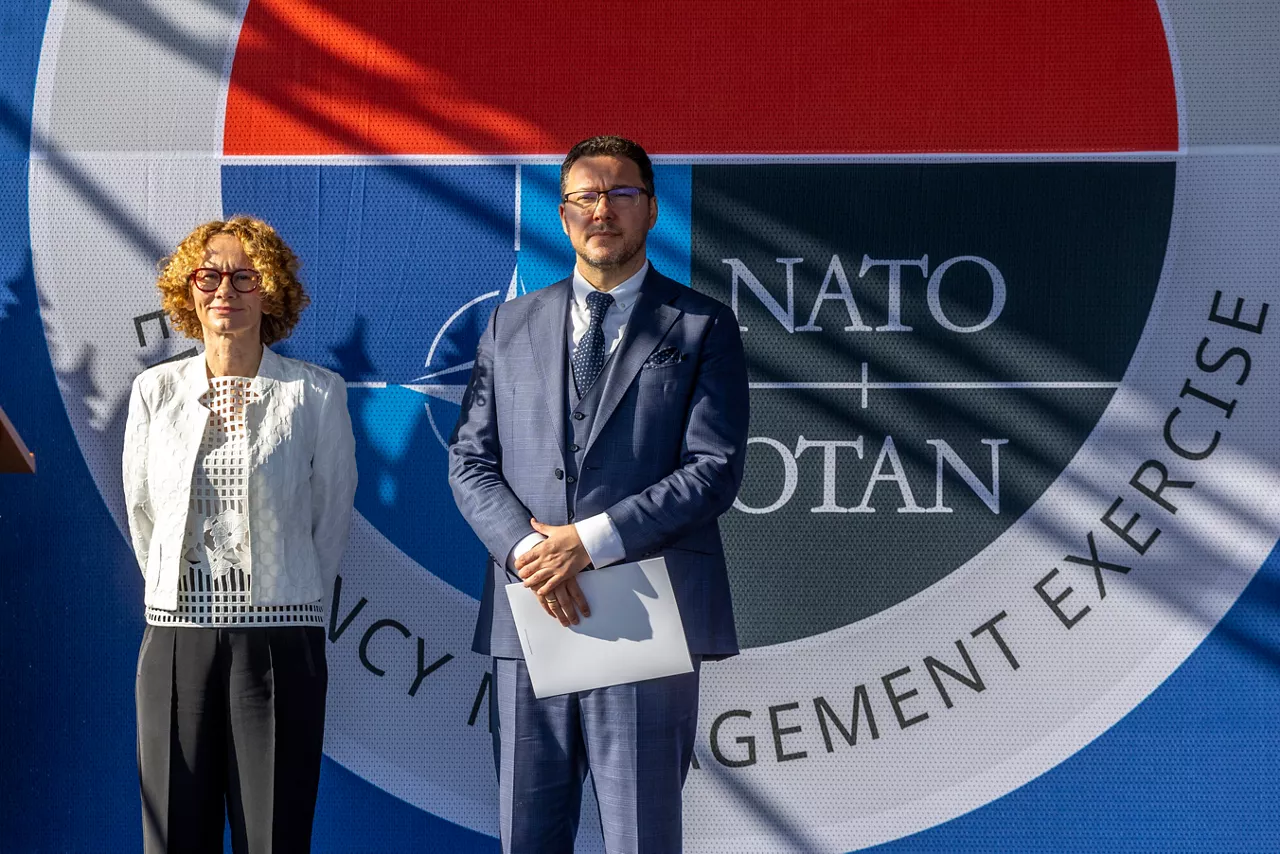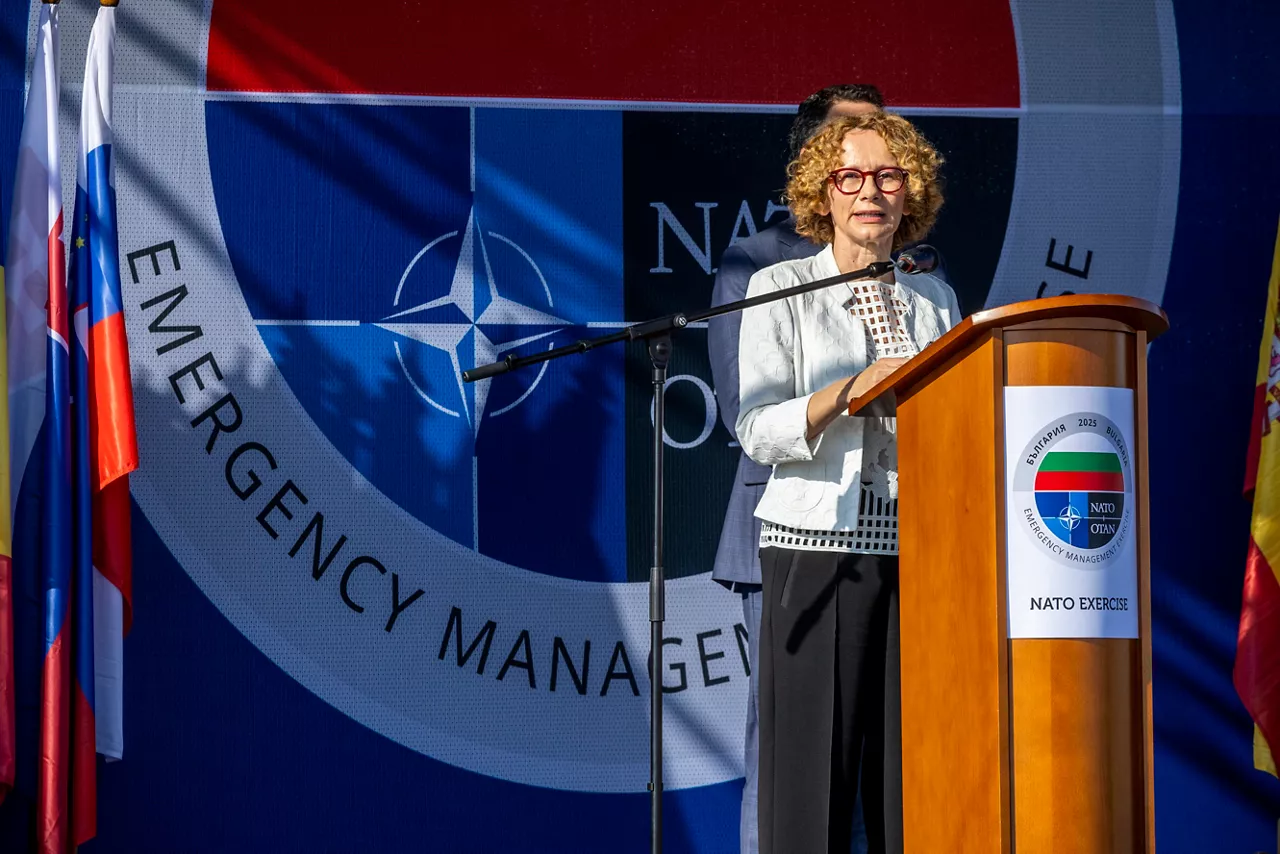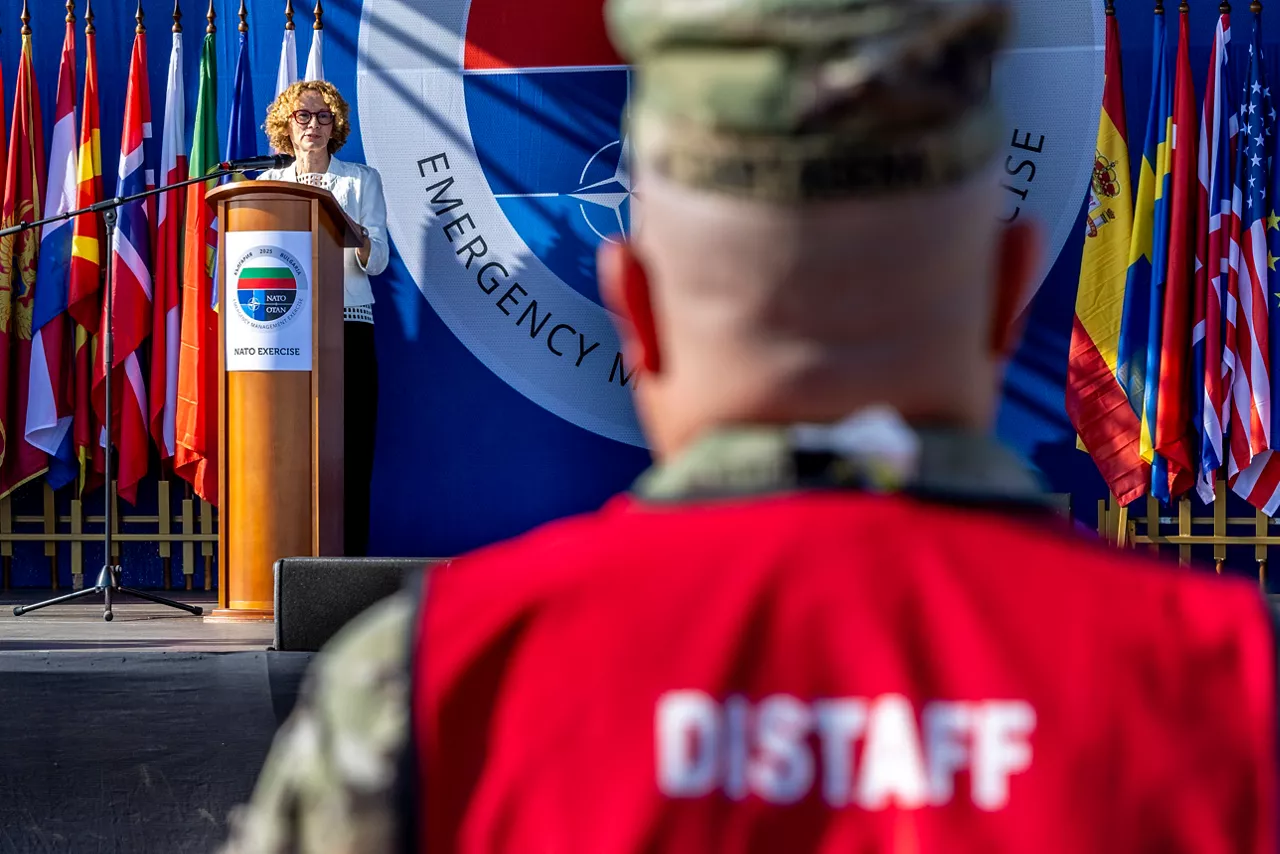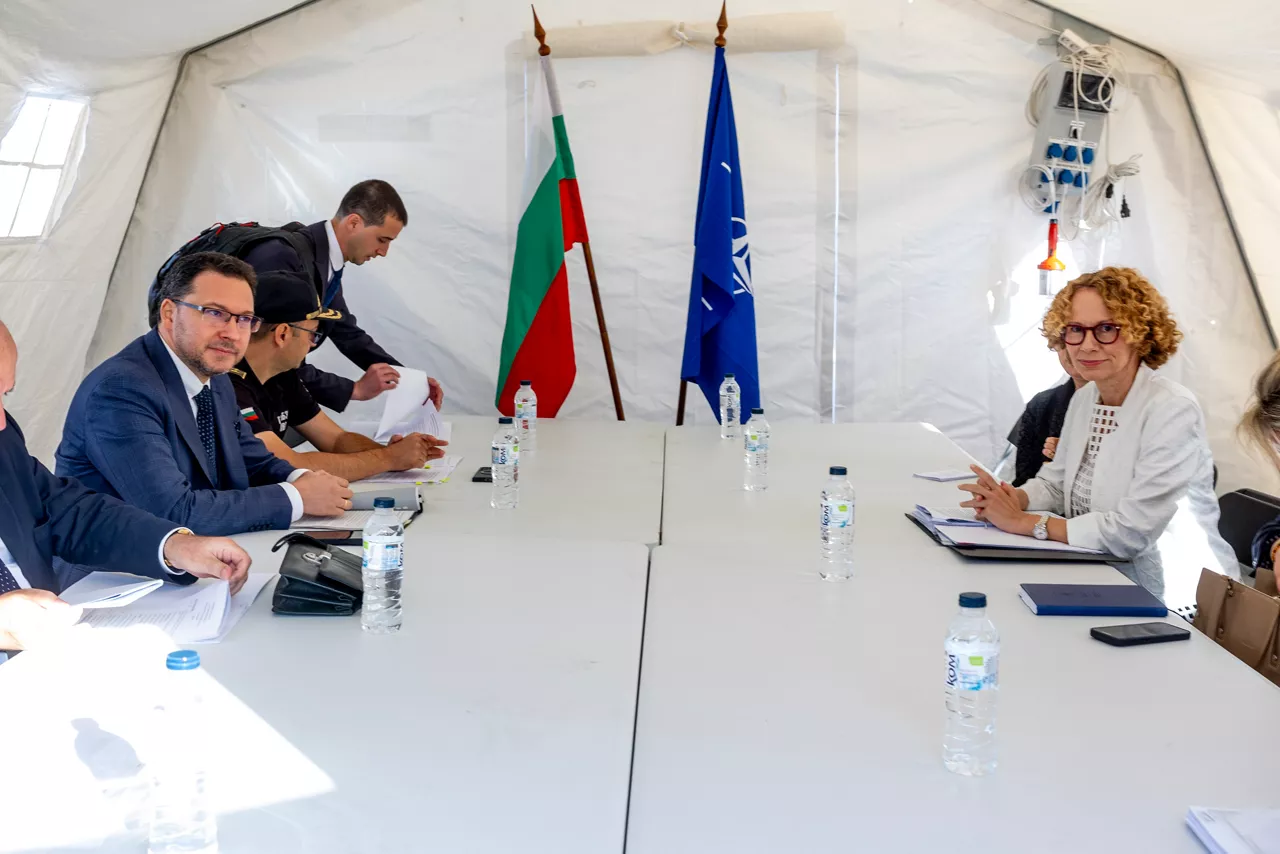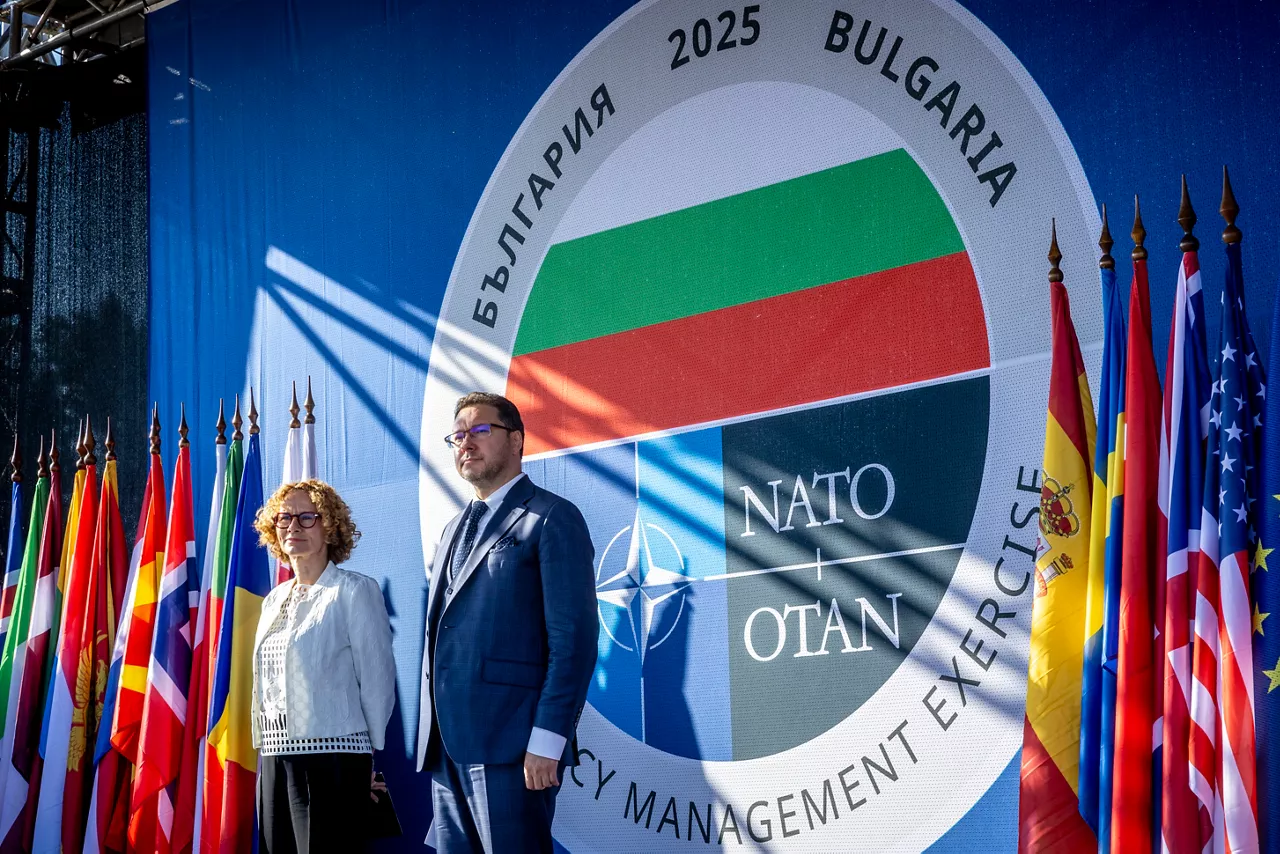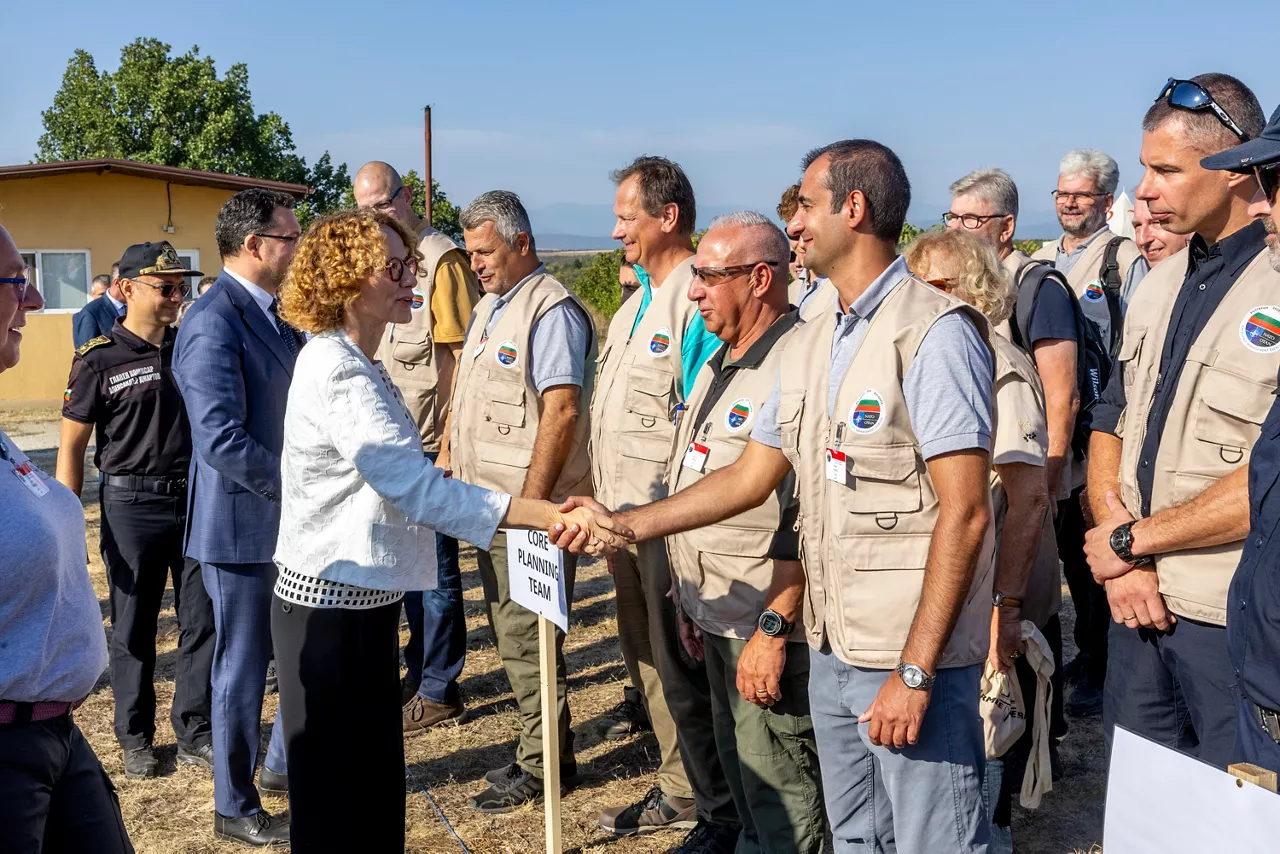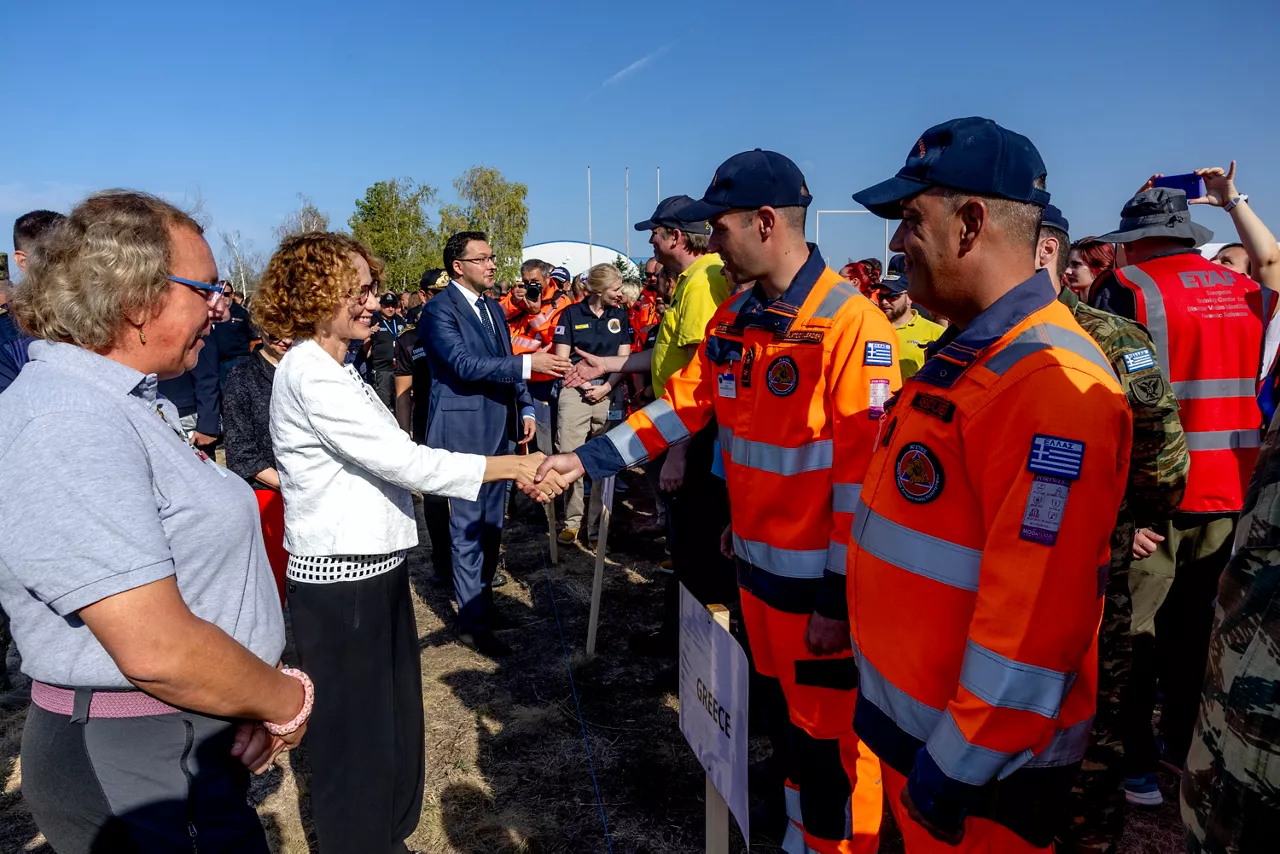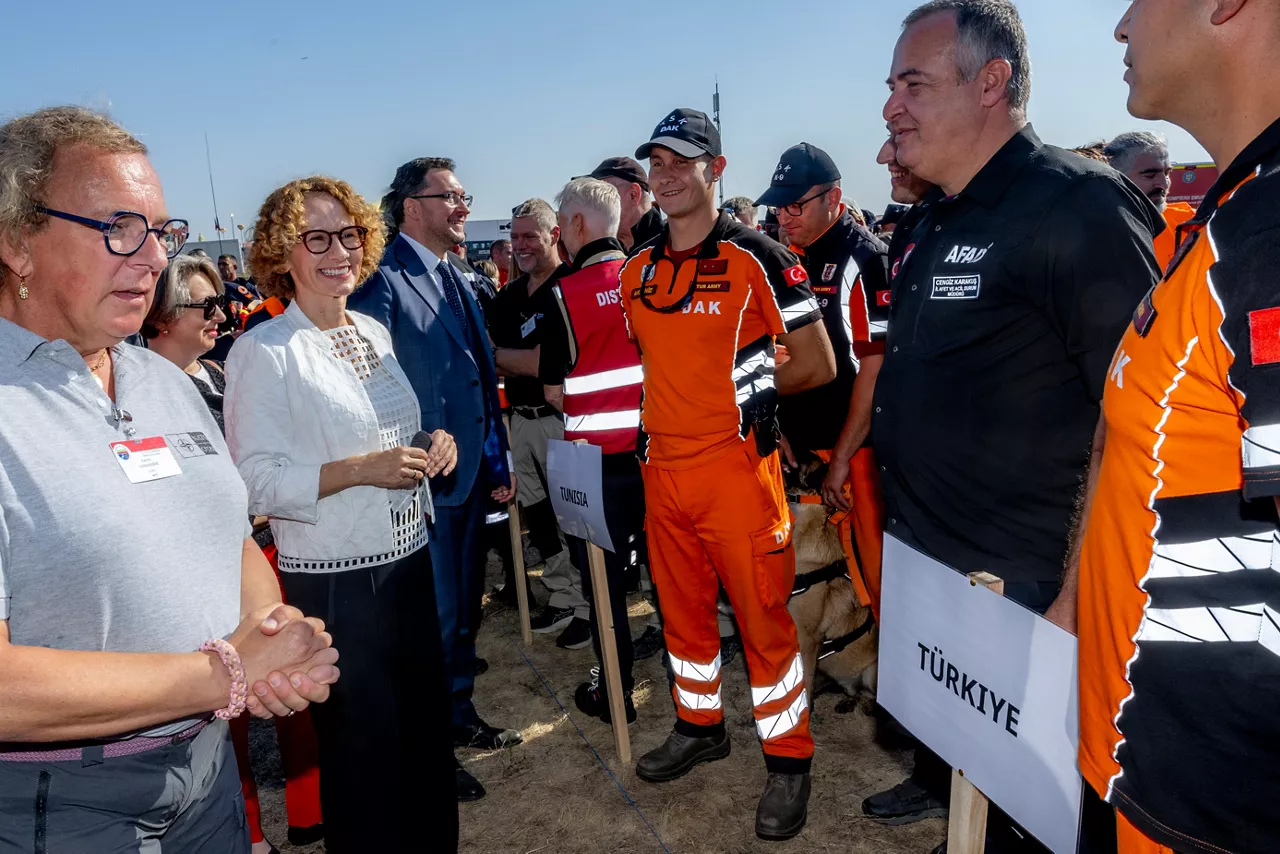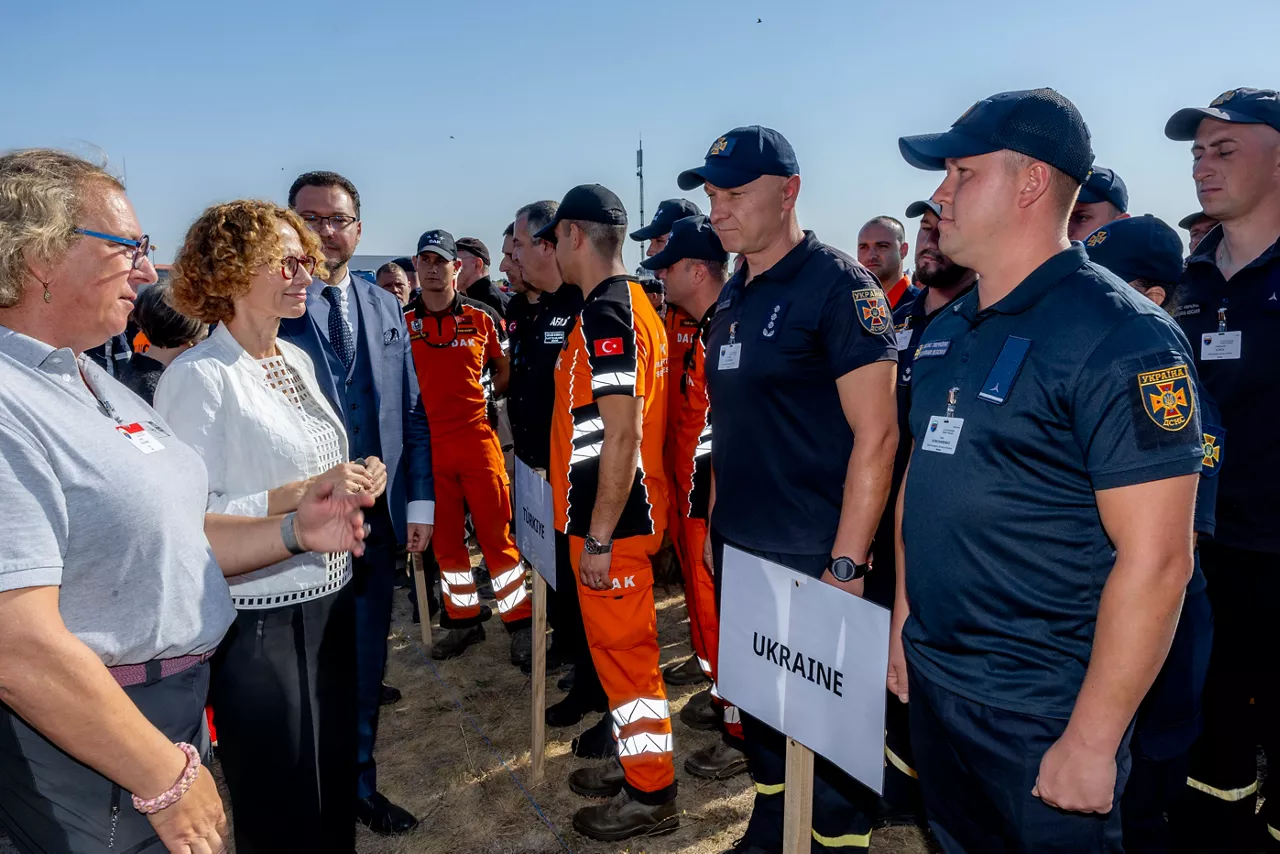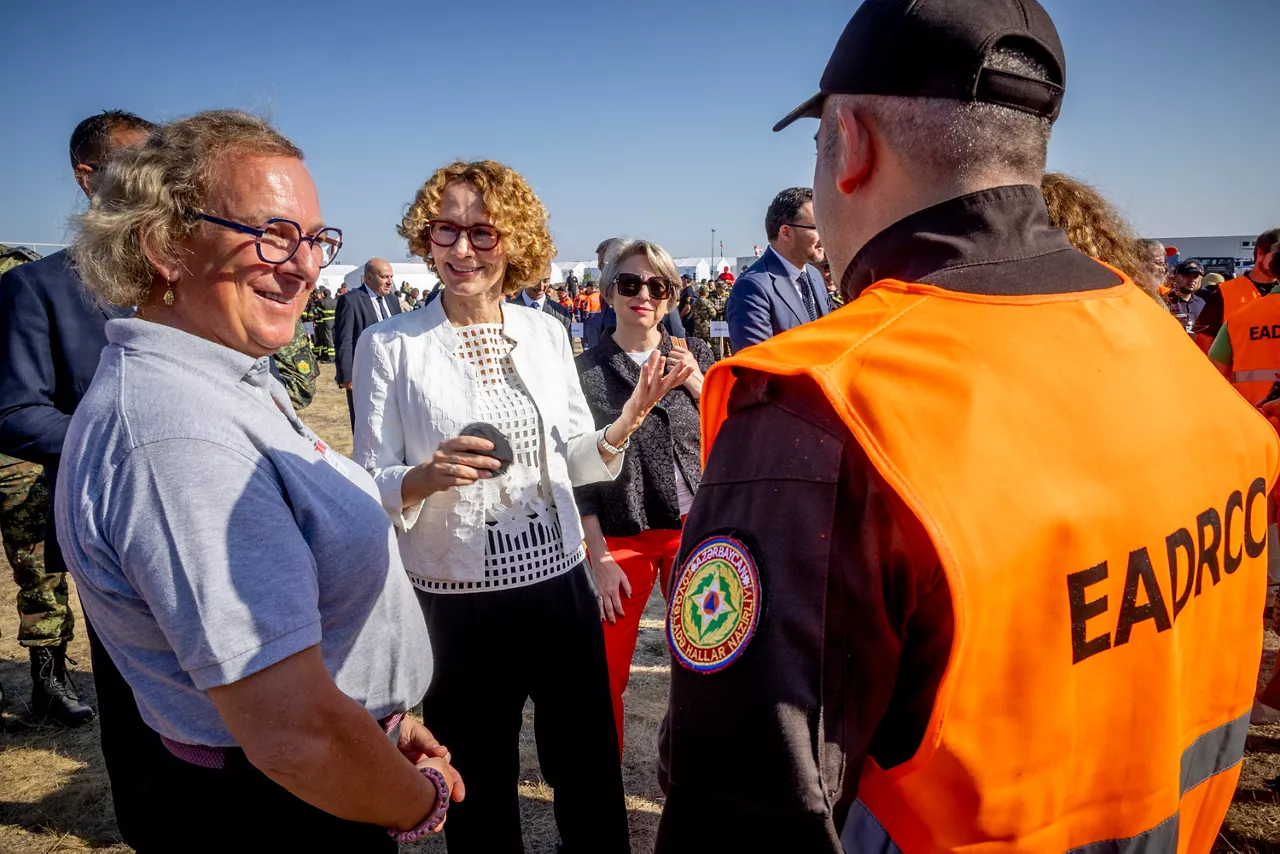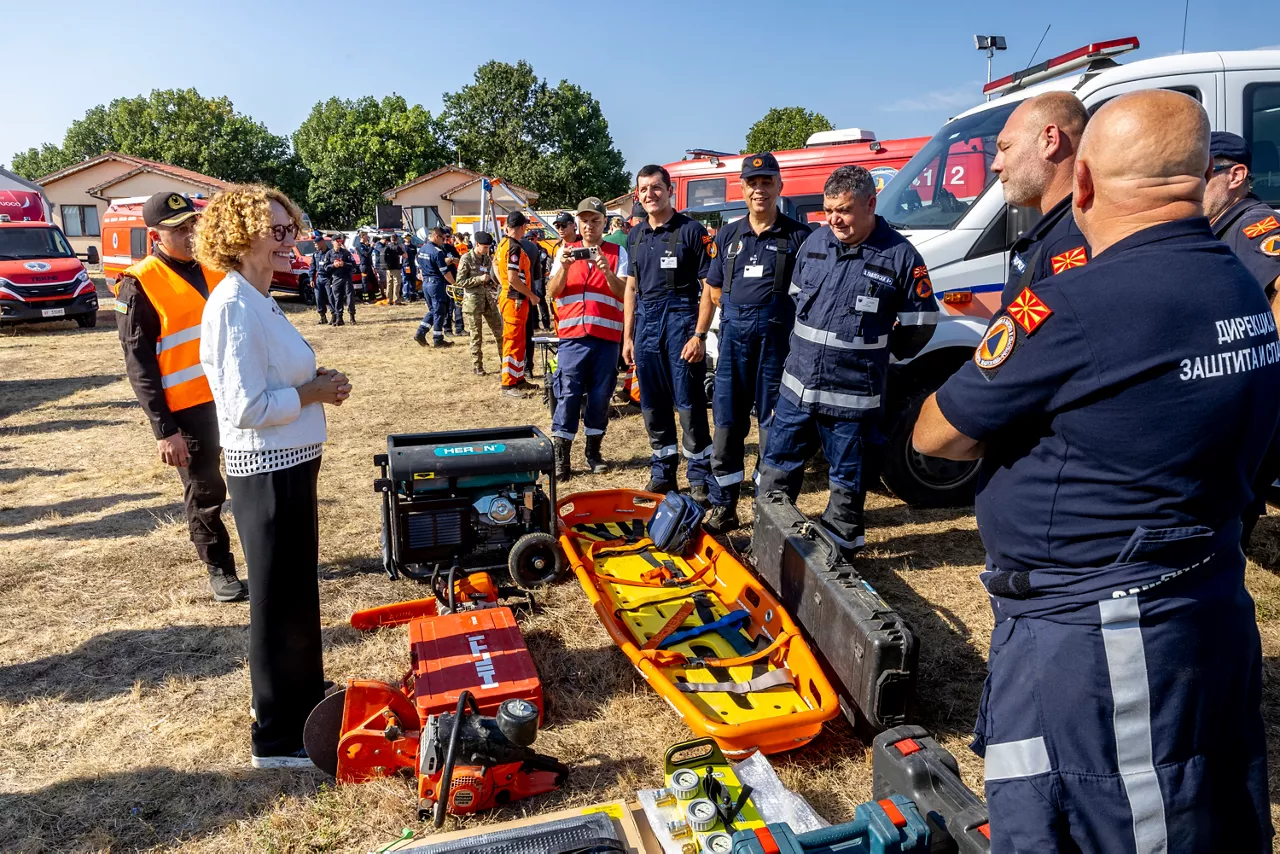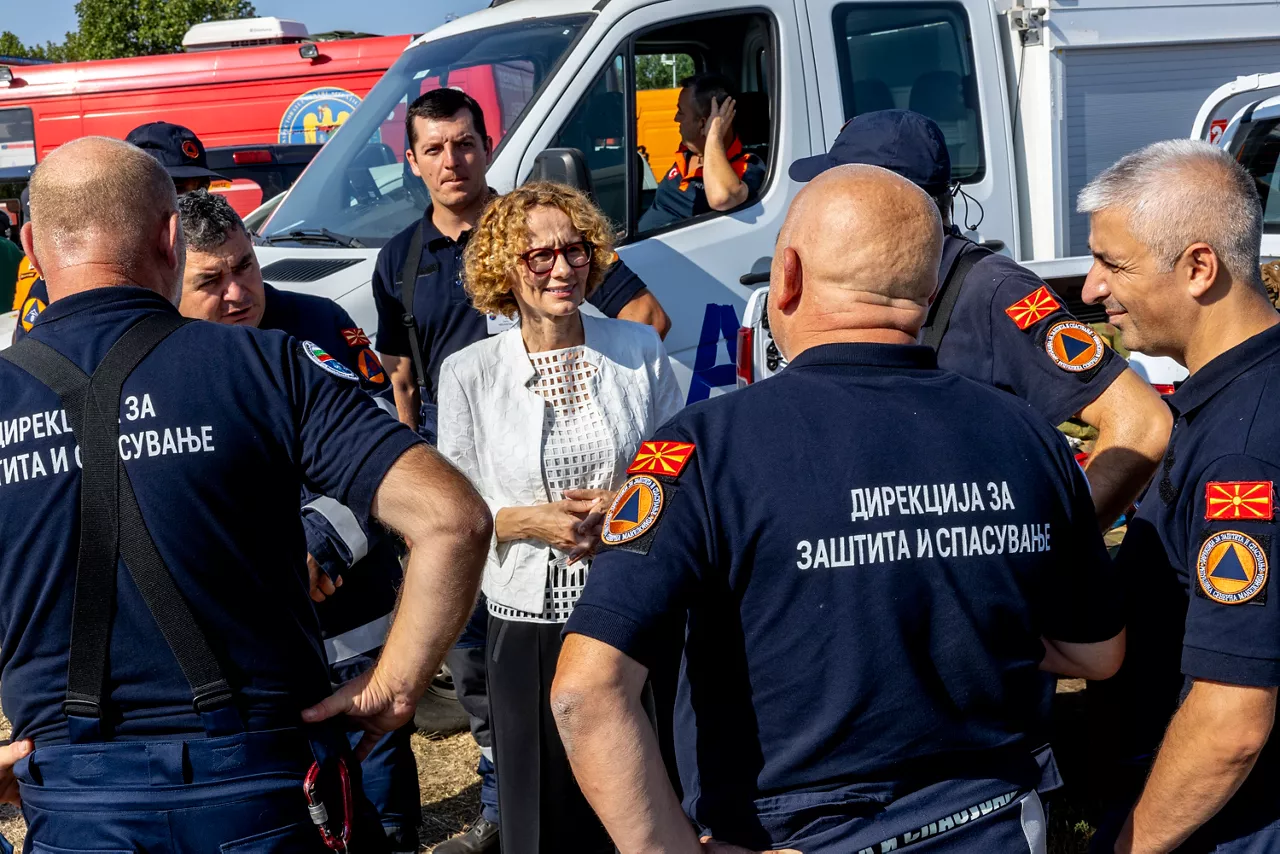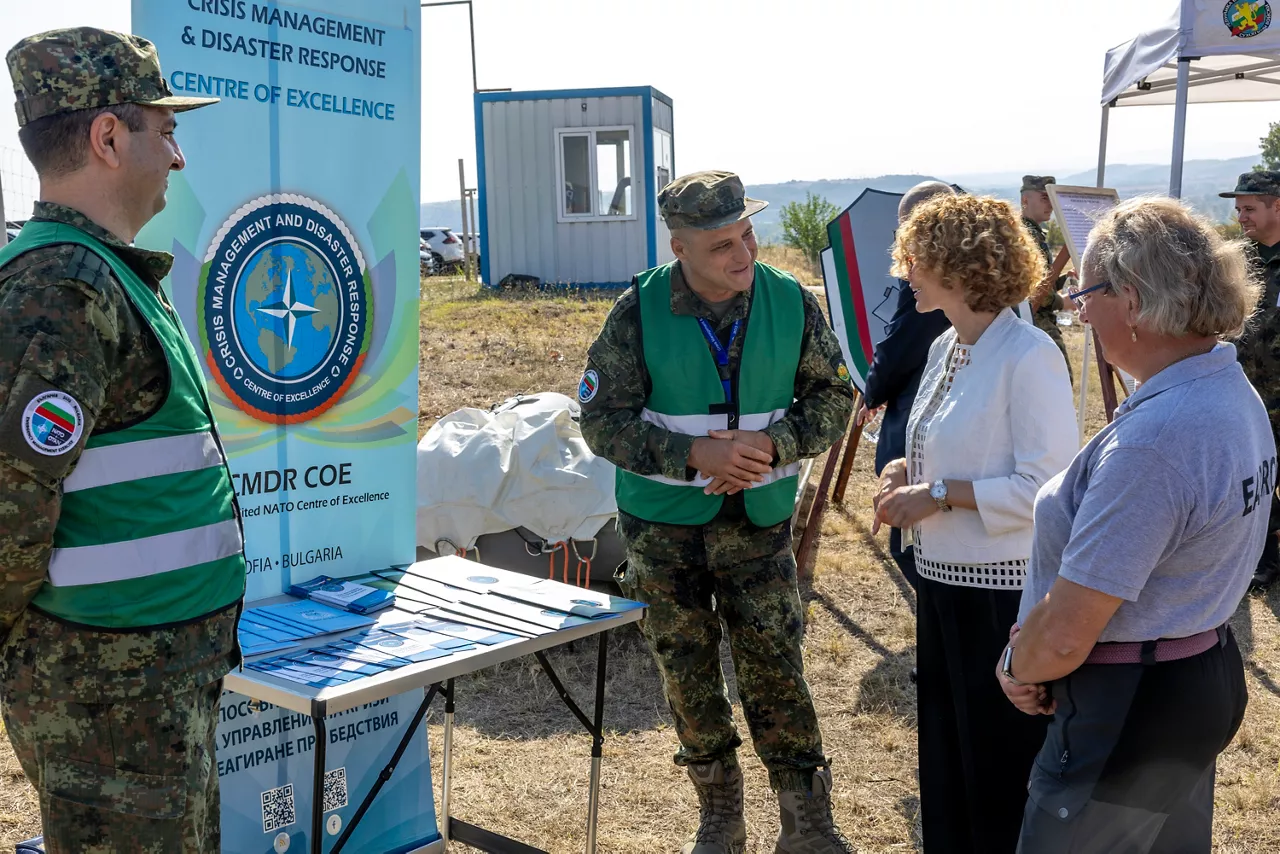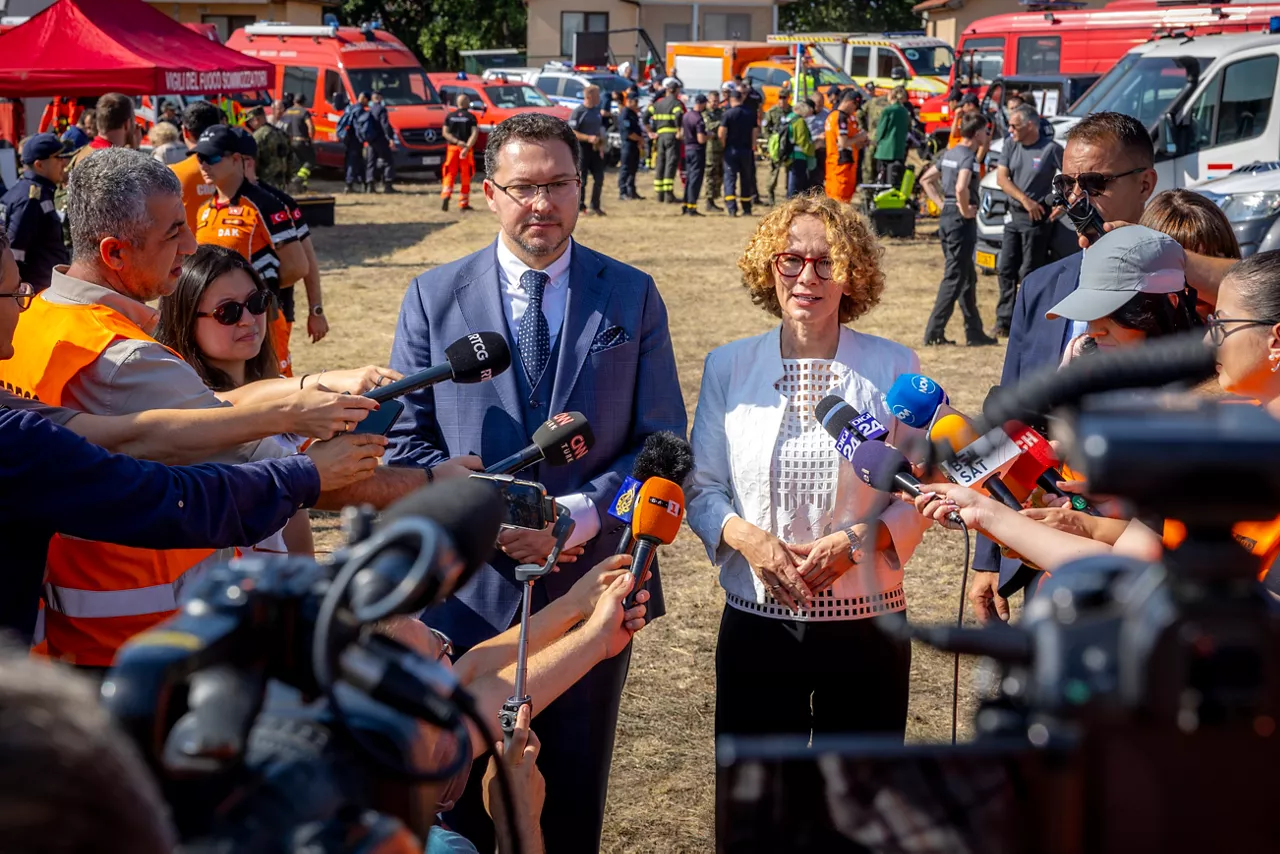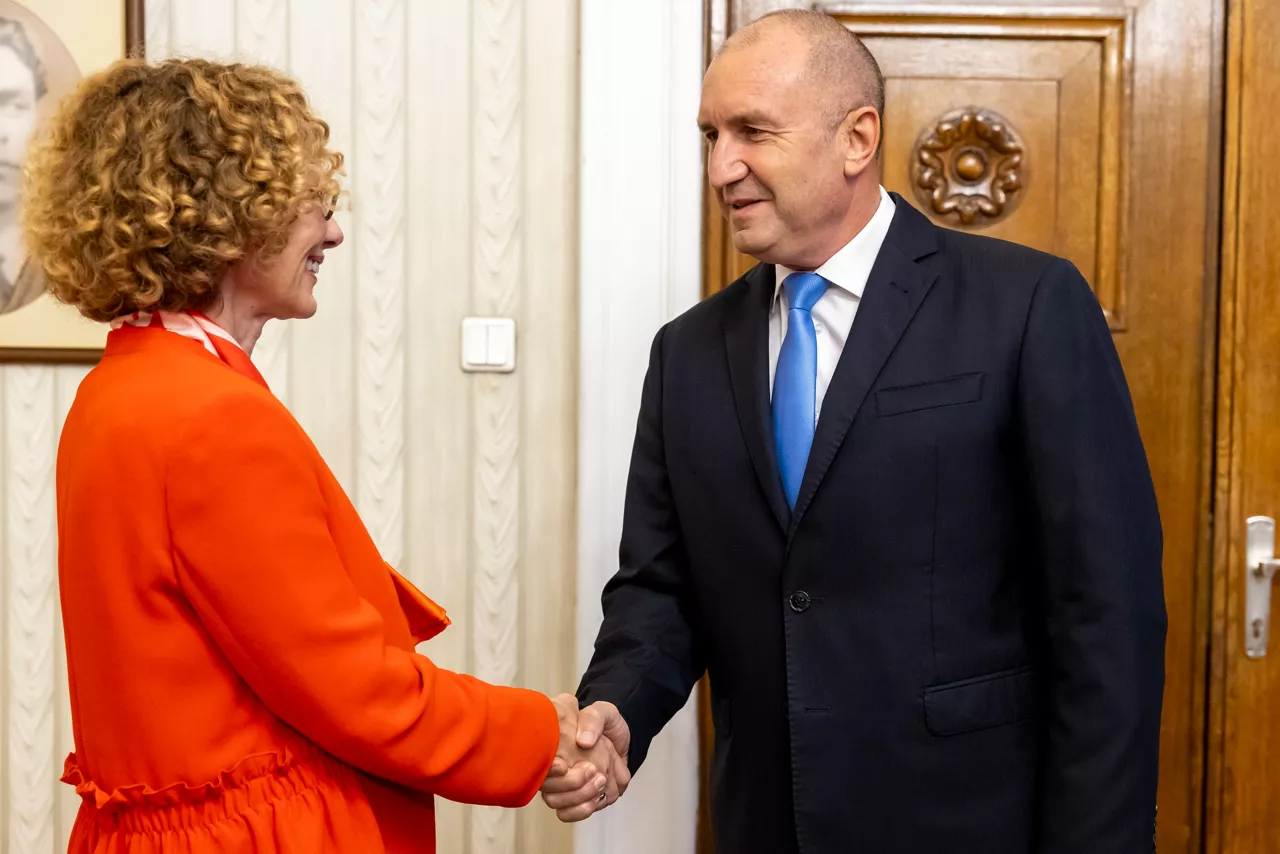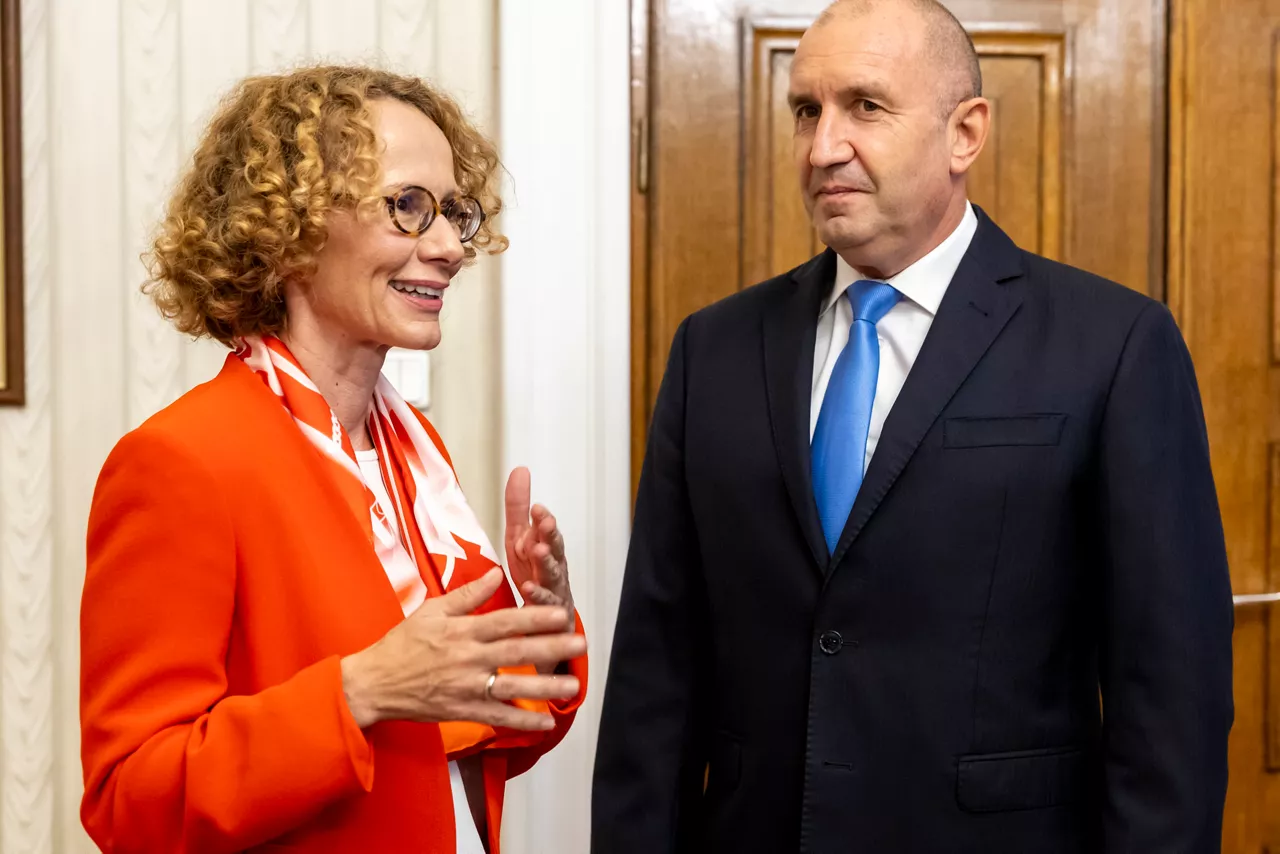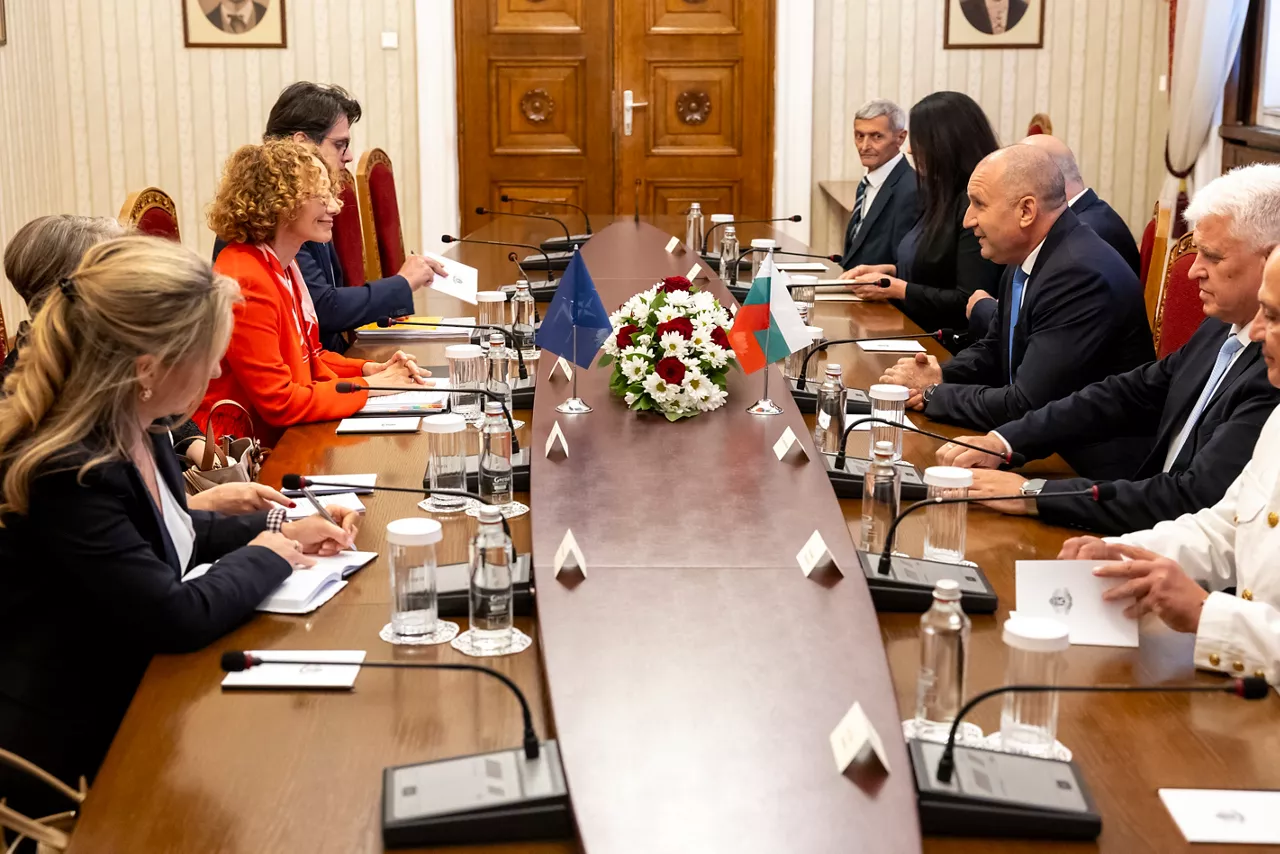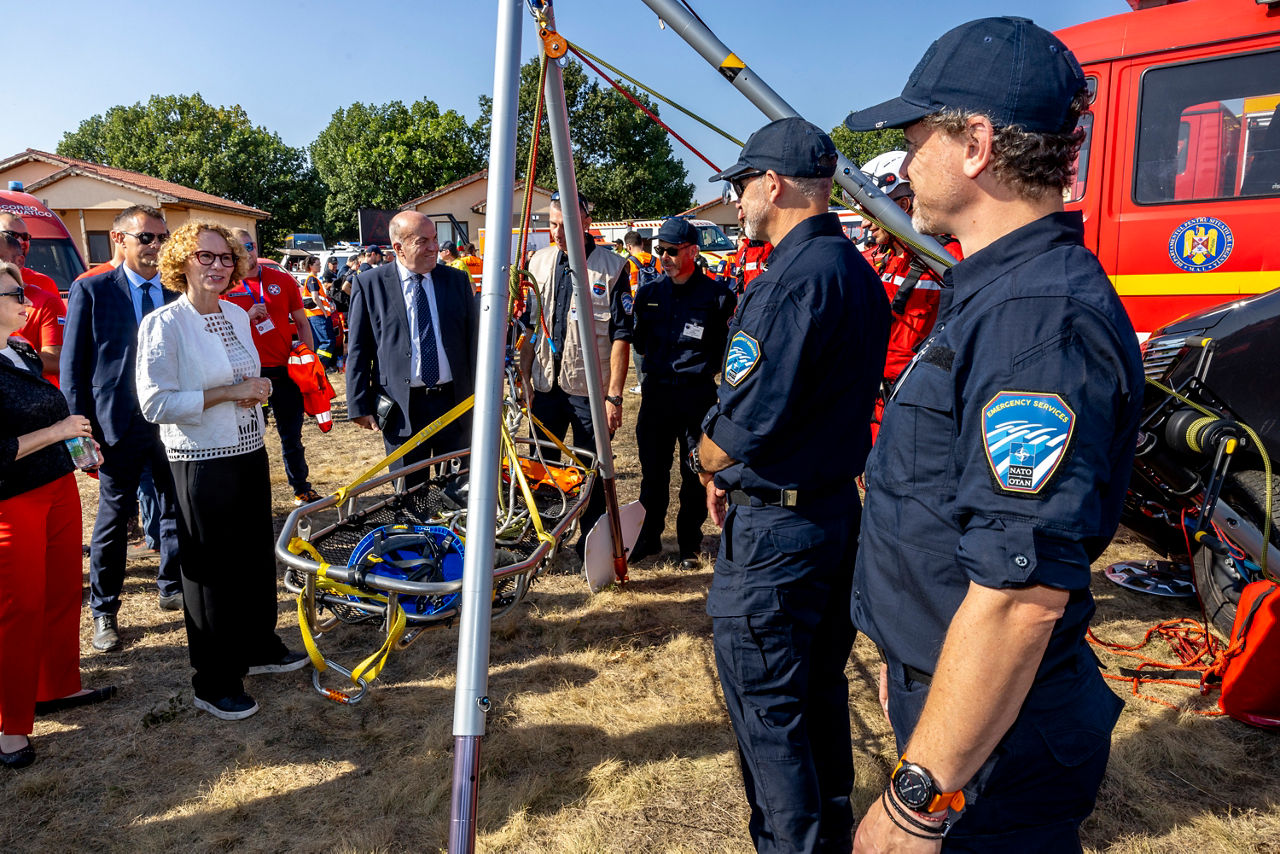Download NATO’s broadcast-quality video content free of charge

NATO MULTIMEDIA ACCOUNT
Access NATO’s broadcast-quality video content free of charge

Check your inbox and enter verification code
You have successfully created your account
From now on you can download videos from our website
Subscribe to our newsletter
If you would also like to subscribe to the newsletter and receive our latest updates, click on the button below.
Enter the email address you registered with and we will send you a code to reset your password.
Didn't receive a code? Send new Code
The password must be at least 12 characters long, no spaces, include upper/lowercase letters, numbers and symbols.
Your password has been updated
Click the button to return to the page you were on and log in with your new password.
Speech
by NATO Deputy Secretary General Radmila Shekerinska at Atlantic Club in Sofia
08 September 2025
10 MIN READ
(As delivered)
But thank you very much for being such a firm friend of NATO for so many years, both personally and through the Organization. You stood proudly as a Foreign Minister when Bulgaria’s flag was first raised in the old NATO Headquarters, back in 2004.
And I was told that you also donated the now-famous Trabant, very close to the new Headquarters, which stands as a symbol of the incredible journey countries like yours – and mine, though we had very few Trabants, I have to admit – made on the path to freedom and democracy.
And we know how difficult it is, and we know how sometimes the road was not as straightforward as we would wish it to be.
But this is a testament that we have made it.
Let me use the opportunity, because we are here to also thank the Minister of Defence, the Minister Zaprianov, for the warm welcome that I have received here in Bulgaria. I appreciate very much the support of your Ambassador to NATO, who has been really, very instrumental in organising this visit. I had the opportunity also to meet the Prime Minister with the two key ministers yesterday.
And we have really focused very much on how Bulgaria is implementing the difficult and demanding decisions that the NATO Alliance took in The Hague.
Yesterday and today, I - we really, as a delegation - had the privilege to participate at two very important events. The first one, yesterday, was a visit to NATO's Multinational Forward Land Forces, here in Novo Sello in Bulgaria, where we could see transatlantic unity in action. We saw how deterrence and defence look on one part of the Eastern flank. We have seen them how they help us deter aggression on the Eastern flank. And we have seen how, through your support as a host country, you invest in NATO security and stability, both within but also beyond our borders.
This is not the only contribution that Bulgaria makes when it comes to our deterrence and defence. Bulgaria contributes to our missions in Kosovo, but also in Iraq. You participate in the counter mine task force in the Black Sea, together with neighbours, Romania and Türkiye. And host also one of the so-called DIANAs, Defence Innovation Accelerator, test centres here at the Naval Academy.
But this was the visit of yesterday.
Today we went actually one step further.
So together with the Bulgarian Minister of Interior, we opened up the big exercise, BULGARIA 2025,
Which is one of the largest, and we think most complex, of this civilian emergency exercises globally this year. The last one that took place along the same format was in North Macedonia back in 2021.
But these are all ways in which we see that Allies like Bulgaria actually do to support our joint security, by bringing in this case, not only soldiers and first responders, but also scientists, innovators, doctors, paramedics. So that we can better prepare our societies and our institutions to face disasters and to save lives.
It was really a remarkable display of Allied unity.
We have had 28 Allies, 18 partner countries. So as far as from Japan, Colombia, Azerbaijan, quite a wide participation.
And this is something that we want to send as a message: that NATO is about securing our future, about saving lives, about working together to accomplish these goals.
So, this working together to keep our citizens safe is more important now, because the world has become an even more dangerous and more challenging place.
Given Bulgaria's strategic location here at the Black Sea, you don't need me to remind you that Russia remains the most direct and long-term threat to our security.
And this is what leaders in The Hague underlined. Together with terrorism, this is our goal. How do we deter this danger? How do we prepare and defend for this?
We see that Russia continues to step up its indiscriminate attacks on Ukrainian homes, hospitals and schools. And just two days ago, you know, the most severe attack, especially to Ukraine, but to civilian targets, to civilian infrastructure, with more than 800 drones, was a clear indication that Putin is not really interested in peace. At the same time, Russia is stepping up its campaign of sabotage, cyber-attacks, assassination attempts and GPS jamming against our countries.
So, at the Summit in The Hague, NATO leaders were crystal clear about our priorities, having all this in mind:
Strengthen our own defences through more defence investment and production, and step up our support for Ukraine.
That's exactly what we are doing, because, as the Secretary General said after the Summit was over, now our goal is implementation, implementation, implementation,
Focusing on these three priorities on which leaders agreed, Europe and North America together in doing this in NATO. And this is what I'm here to talk about.
And I will start first with Ukraine. And it is great to see the Ukrainian Ambassador here in Sofia.
We are really laser-focused on ensuring Ukraine has what it needs in order to defend itself today but also to deter aggression in the future.
NATO Allies provide 99 percent of all the military support to Ukraine.
And just last month alone, several European Allies and Canada have committed over two billion dollars of support through NATO’s PURL model, and this is the new Prioritised Ukraine Requirements List.
This new initiative will get key critical US equipment already in the stockpiles flowing to Ukraine quickly.
Because time is also of essence. And this why I also use this opportunity to urge all Allies to participate and to support. And I thank very much the countries that have already shown how important the support to Ukraine is for all of us.
NATO supports Ukraine through a range of other political and practical measures.
So, including the NATO-Ukraine Council, our office in Kyiv, our command in Wiesbaden, our joint lessons learned centre in Poland, and much more.
Allies, several of them including Denmark, are also investing heavily in Ukraine’s own defence industry.
And also learning from Ukraine’s innovation, especially when it comes to drone industry.
And we always, whenever we meet our counterparts from Ukraine, whenever we meet people from Ukraine’s defence industry, we cannot underline more how much we appreciate their innovation, their resilience, and their expertise in all this.
At the same time, US President Trump is leading efforts to bring an end to this terrible war.
Because no one deserves peace more than Ukraine and its people.
Last month’s meeting in the White House between President Trump, President Zelenskyy, the NATO Secretary General, and a number of European leaders was a strong demonstration of our unity but also our resolve.
And the Secretary General of NATO reaffirmed this support during his visit to Kyiv just ahead of Ukraine’s Independence Day.
Under the leadership of France and the UK, more than 30 countries in the Coalition of the Willing have committed to a reassurance force to deter further Russian aggression once the fighting has stopped. And to assist in regenerating the Ukrainian Armed Forces.
This is a key part of the work underway to define clear security guarantees for Ukraine – including with the involvement of the United States.
So, strong Ukrainian defences are the first line of defence.
Backed by strong security guarantees that ensure that Russia never again attacks Ukraine.
I want to thank Bulgaria for its steadfast support to Ukraine,
I want to call on Bulgaria and other Allies to continue this support. Especially in supporting key military equipment, including through PURL.
Especially focusing on air defence equipment, armoured vehicles, missiles, light weaponry, ammunition. And that’s not only because it’s the right thing to do, but also because it is the smart thing to do.
It is because this matters to Ukraine’s security. But it also matters to our security.
My second point today is also on one of the issues, one of the deliverables from the Hague Summit.
Even when the guns finally fall silent in Ukraine, the long-term threat from Russia will persist.
Russia is rapidly rearming, rolling out weapons at a remarkable rate, powered also by Chinese technology, Putin is allocating 40% of his state budget to his war chest. And he's cozying up with China, Iran, North Korea and Belarus, just like we saw in Beijing last week.
Massively increasing their military cooperation and capabilities and preparing for a long-term confrontation with us.
However this war ends, Russia will remain a destabilising force in Europe and in the world.
So we all need to step up and invest more.
Spend more in our defence and spend more in our security.
I welcome the fact that Bulgaria has committed and delivered on the 2% of GDP pledge that we have made years ago.
I am glad that all Allies practically did it this year.
But I especially commend the fact that Bulgaria also has committed to reaching the total 5% of GDP by 2035.
And this is not spending for the sake of it.
It's spending for the sake of our security. And there is definitely nothing more important than preserving this security.
This will require a massive societal effort
And as a former Defence Minister, in a time of increased defence spending, practically doubling it in the course of several years, I know this is a huge ask.
And it requires really a very strong effort by every country, by any Ally, big or small.
But it is a societal effort, not just governments.
But everyone stepping up and doing their part.
Citizens and civil society.
Industry and entrepreneurs.
Which brings me to my last point, and this is boosting our defence industries.
The Secretary General has said this repeatedly: cash alone won't keep us safe.
You don't defend with percentages of GDP.
Declarations don't deter adversaries by itself.
It is called hard capabilities that do the job.
Real fire power, heavy metal, new technologies.
Capabilities our world-class transatlantic defence industries provide.
They have done it in the past. They can do it now.
Until recently, Russia was producing more ammunition in three months that all NATO Allies were in a year.
And that was unacceptable.
According to some sources, China is acquiring high-end weaponry systems and equipment five to six times faster than our biggest Ally.
But as NATO Secretary General also announced last month, we are really starting to turn the tide.
Because of this decisiveness of the leaders
Because of this resolve within the Alliance, especially when it comes to ammunition production.\
So, EU countries are on target to produce 2 million rounds of ammunition a year by end of 2025.
And this is six times more than at the start of Russia's full-scale war.
So, this is, I think, one of the clear proofs that when there is a will, we find a way.
Especially when we act in a transatlantic manner, with the resolve, with the decisiveness and the political leadership that we need.
We still have a long way to go when it comes to defence production, especially when we talk about more complex capabilities,
Like tank missiles, air defence systems. All this is crucially important for our defence and deterrence.
But I'm glad to say that from all the interaction with Allies and defence industry, we are on the right path.
I will use the opportunity being in Bulgaria to say that also this is an Ally that is stepping up in this respect. You're modernising your armed forces with battle winning tanks, fighter jets and patrol ships. You're investing in US armoured vehicles, which will be produced partially also here in Bulgaria. And Bulgaria's defence industry is rapidly growing with multiple munition and small arms manufacturers, worth billions of euros.
We also, when you know one of the big defence producers Rheinmetall, announced that it will build at least two new factories here in Bulgaria. One for artillery shells, with a target of producing 100,000 rounds a year.
And another one, which will become one of Europe's largest gunpowder plants. Together with the Bulgarian government, Rheinmetall is investing over 1 billion euros in these new production facilities, which will also mean hundreds of new and skilled jobs.
And this is what Secretary General has referred to as the job dividend of our investment in security. And this is really the attempt to empower our Allies to invest more, not just in spending, but also in defence production. This is essential for our security and for supporting Ukraine.
It is good for projecting stability in the future. It is good for our economies, and this is something that Allies have agreed to do as an Alliance.
Ladies and gentlemen, the challenges we face are great, but NATO's unity and resolve is greater than ever. And this is what we worked for at the NATO Summit, but this is also our daily job post-Summit.
During this visit, during visits of other Allies, when we visit the troops, we visit our colleagues, we see this solidarity and unity in action.
So, Allies stepping up to keep Bulgaria safe, but also to keep our Alliance strong
While helping our defence industries and economies to grow.
This is why it is a privilege to have these important discussions again and again.
We appreciate the role of civil society in making this a societal discussion, a societal agreement,
Because it is clear that these security challenges did not happen overnight. They will not be solved overnight.
And this is why we need to invest in a continued support for these policies. We need to invest really in a societal unity and Alliance unity, so that we can bring forward this agenda and we can guarantee the safety and security of one billion citizens that we have.
So, thank you very much, Solomon, and I look forward to our discussion as well.
Related assets
GALLERIES
NATO Deputy Secretary General visits Bulgaria
07 September 2025 - 08 September 2025
NATO Deputy Secretary General Radmilla Shekerinska with the NATO Permanent Representative for Bulgaria, Nikolay Milkov
NATO Deputy Secretary General Radmilla Shekerinska meets with the Prime Minister of Bulgaria, Rossen Jeliazkov
NATO Deputy Secretary General Radmilla Shekerinska meets with the Prime Minister of Bulgaria, Rossen Jeliazkov
NATO Deputy Secretary General Radmilla Shekerinska meets with the Prime Minister of Bulgaria, Rossen Jeliazkov
NATO Deputy Secretary General Radmilla Shekerinska arrives at Bezmer Airbase
NATO Deputy Secretary General Radmilla Shekerinska arrives at Bezmer Airbase
NATO Deputy Secretary General Radmilla Shekerinska arrives at Bezmer Airbase
NATO Deputy Secretary General Radmilla Shekerinska and Atanas Zaprianov, Minister of Defence of Bulgaria
NATO Deputy Secretary General Radmilla Shekerinska and Atanas Zaprianov, Minister of Defence of Bulgaria
NATO Deputy Secretary General Radmilla Shekerinska visits Novo Selo Training Area Multinational Battle Group and meets with the troops
NATO Deputy Secretary General Radmilla Shekerinska visits Novo Selo Training Area Multinational Battle Group and meets with the troops
NATO Deputy Secretary General Radmilla Shekerinska and the Minister of Defence of Bulgaria, Atanas Zaprianov visit Novo Selo Training Area Multinational Battle Group. Briefing by the Commander MBG, Col Mattia Scirocco
NATO Deputy Secretary General Radmilla Shekerinska and the Minister of Defence of Bulgaria, Atanas Zaprianov visit Novo Selo Training Area Multinational Battle Group. Briefing by the Commander MBG, Col Mattia Scirocco
NATO Deputy Secretary General Radmilla Shekerinska visits Novo Selo Training Area Multinational Battle Group and meets with the troops
NATO Deputy Secretary General Radmilla Shekerinska visits Novo Selo Training Area Multinational Battle Group and meets with the troops
NATO Deputy Secretary General Radmilla Shekerinska and the Minister of Defence of Bulgaria, Atanas Zaprianov visit Novo Selo Training Area Multinational Battle Group. Briefing by the Commander MBG, Col Mattia Scirocco
NATO Deputy Secretary General Radmilla Shekerinska visits Novo Selo Training Area Multinational Battle Group and meets with the troops
NATO Deputy Secretary General Radmilla Shekerinska visits Novo Selo Training Area Multinational Battle Group and meets with the troops
NATO Deputy Secretary General Radmilla Shekerinska visits Novo Selo Training Area Multinational Battle Group and meets with the troops
NATO Deputy Secretary General Radmilla Shekerinska visits Novo Selo Training Area Multinational Battle Group and meets with the troops
NATO Deputy Secretary General Radmilla Shekerinska visits Novo Selo Training Area Multinational Battle Group and meets with the troops
NATO Deputy Secretary General Radmilla Shekerinska visits Novo Selo Training Area Multinational Battle Group and meets with the troops
NATO Deputy Secretary General Radmilla Shekerinska visits Novo Selo Training Area Multinational Battle Group and meets with the troops
NATO Deputy Secretary General Radmilla Shekerinska visits Novo Selo Training Area Multinational Battle Group and meets with the troops
NATO Deputy Secretary General Radmilla Shekerinska visits Novo Selo Training Area Multinational Battle Group and meets with the troops
NATO Deputy Secretary General Radmilla Shekerinska visits Novo Selo Training Area Multinational Battle Group and meets with the troops
NATO Deputy Secretary General Radmilla Shekerinska visits Novo Selo Training Area Multinational Battle Group and meets with the troops
NATO Deputy Secretary General Radmilla Shekerinska visits Novo Selo Training Area Multinational Battle Group and meets with the troops
NATO Deputy Secretary General Radmilla Shekerinska visits Novo Selo Training Area Multinational Battle Group and meets with the troops
NATO Deputy Secretary General Radmilla Shekerinska visits Novo Selo Training Area Multinational Battle Group and meets with the troops
NATO Deputy Secretary General Radmilla Shekerinska visits Novo Selo Training Area Multinational Battle Group and meets with the troops
NATO Deputy Secretary General Radmilla Shekerinska visits the NATO Emergency Management exercise "BULGARIA 2025" with Daniel Mitov, Minister of the Interior of Bulgaria
NATO Deputy Secretary General Radmilla Shekerinska visits the NATO Emergency Management exercise "BULGARIA 2025" with Daniel Mitov, Minister of the Interior of Bulgaria
NATO Deputy Secretary General Radmilla Shekerinska visits the NATO Emergency Management exercise "BULGARIA 2025" with Daniel Mitov, Minister of the Interior of Bulgaria
NATO Deputy Secretary General Radmilla Shekerinska visits the NATO Emergency Management exercise "BULGARIA 2025" with Daniel Mitov, Minister of the Interior of Bulgaria
NATO Deputy Secretary General Radmilla Shekerinska visits the NATO Emergency Management exercise "BULGARIA 2025" with Daniel Mitov, Minister of the Interior of Bulgaria
NATO Deputy Secretary General Radmilla Shekerinska visits the NATO Emergency Management exercise "BULGARIA 2025" with Daniel Mitov, Minister of the Interior of Bulgaria
NATO Deputy Secretary General Radmilla Shekerinska visits the NATO Emergency Management exercise "BULGARIA 2025" with Daniel Mitov, Minister of the Interior of Bulgaria
NATO Deputy Secretary General Radmilla Shekerinska visits the NATO Emergency Management exercise "BULGARIA 2025" with Daniel Mitov, Minister of the Interior of Bulgaria
NATO Deputy Secretary General Radmilla Shekerinska visits the NATO Emergency Management exercise "BULGARIA 2025" with Daniel Mitov, Minister of the Interior of Bulgaria
NATO Deputy Secretary General Radmilla Shekerinska visits the NATO Emergency Management exercise "BULGARIA 2025" with Daniel Mitov, Minister of the Interior of Bulgaria
NATO Deputy Secretary General Radmilla Shekerinska visits the NATO Emergency Management exercise "BULGARIA 2025" with Daniel Mitov, Minister of the Interior of Bulgaria
NATO Deputy Secretary General Radmilla Shekerinska visits the NATO Emergency Management exercise "BULGARIA 2025" with Daniel Mitov, Minister of the Interior of Bulgaria
NATO Deputy Secretary General Radmilla Shekerinska visits the NATO Emergency Management exercise "BULGARIA 2025" with Daniel Mitov, Minister of the Interior of Bulgaria
NATO Deputy Secretary General Radmilla Shekerinska visits the NATO Emergency Management exercise "BULGARIA 2025" with Daniel Mitov, Minister of the Interior of Bulgaria
NATO Deputy Secretary General Radmilla Shekerinska meets with Rumen Radev, President of Bulgaria
NATO Deputy Secretary General Radmilla Shekerinska meets with Rumen Radev, President of Bulgaria
NATO Deputy Secretary General Radmilla Shekerinska meets with Rumen Radev, President of Bulgaria
Speech by NATO Deputy Secretary General Radmila Shekerinska at Atlantic Club in Sofia
Press conference by NATO Deputy Secretary General Radmila Shekerinska at the opening of EADRCC exercise “Bulgaria 2025”
Related content
/

